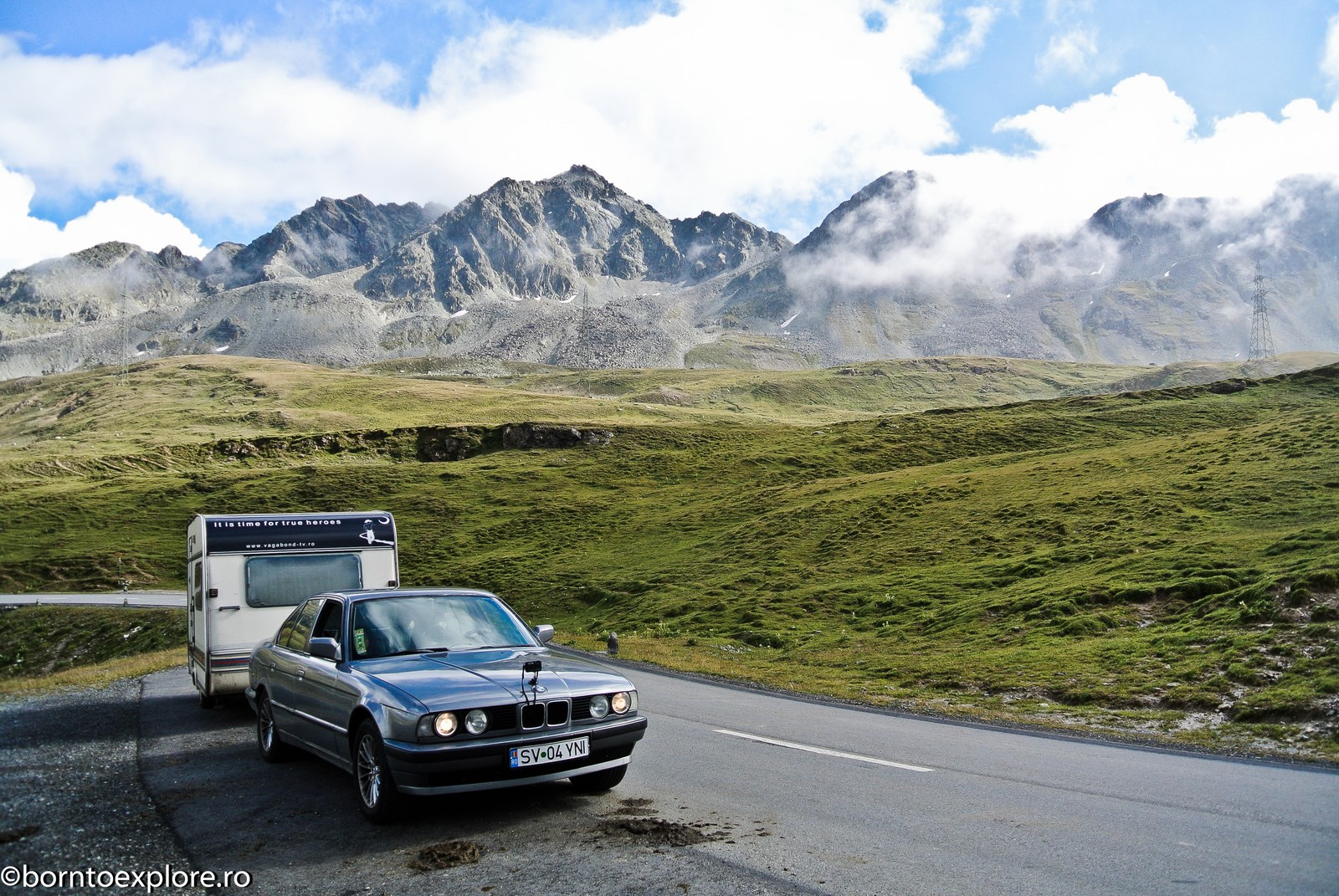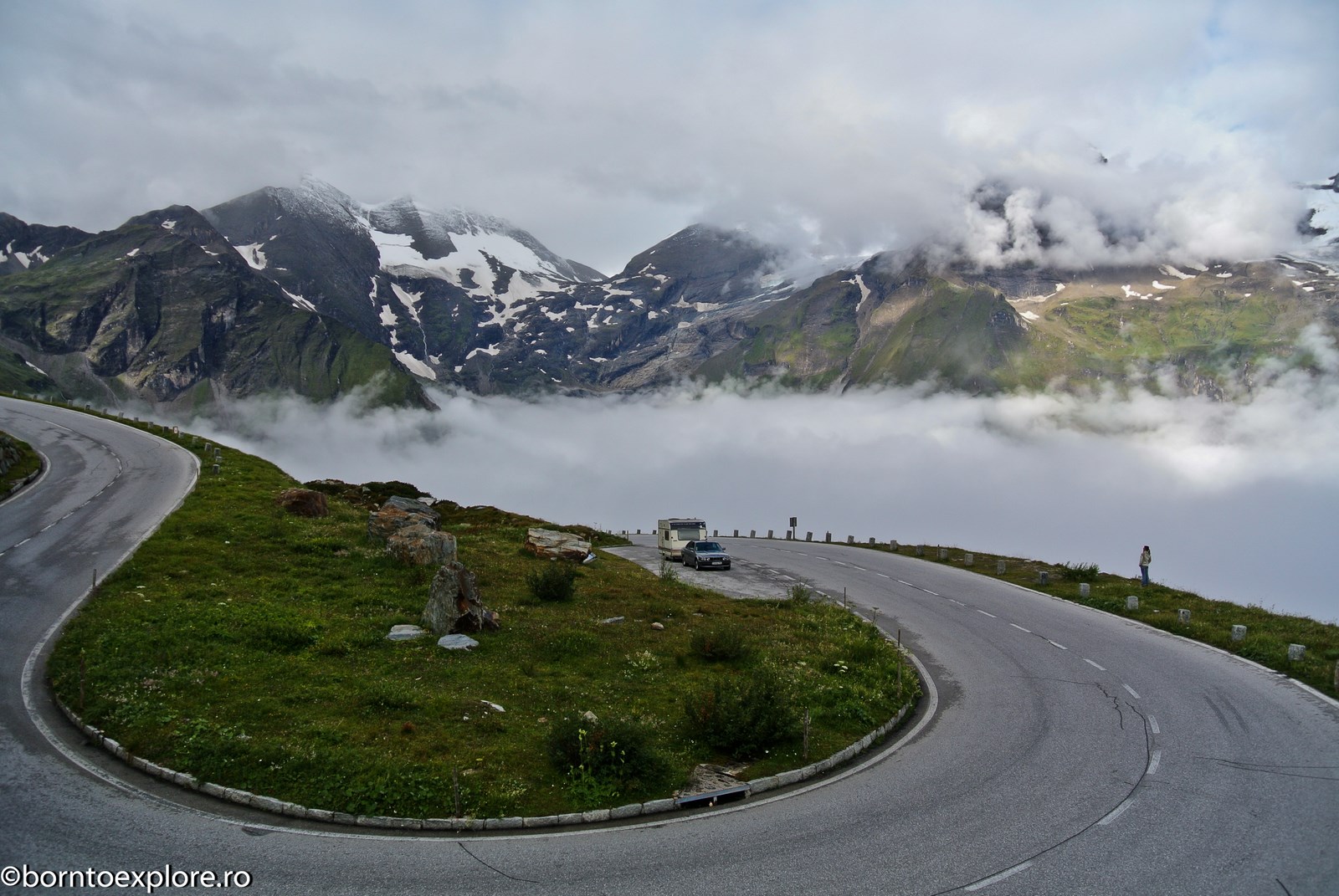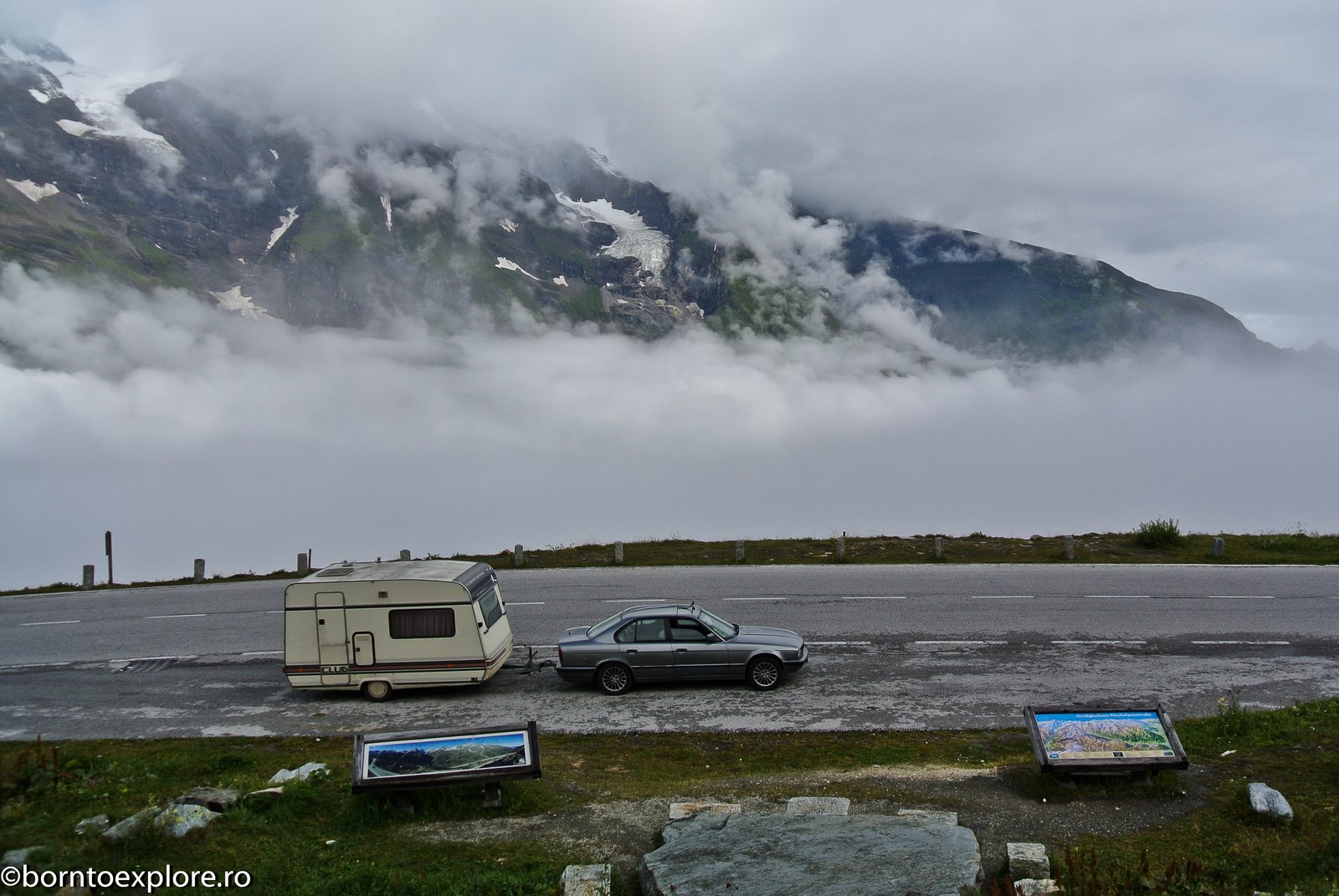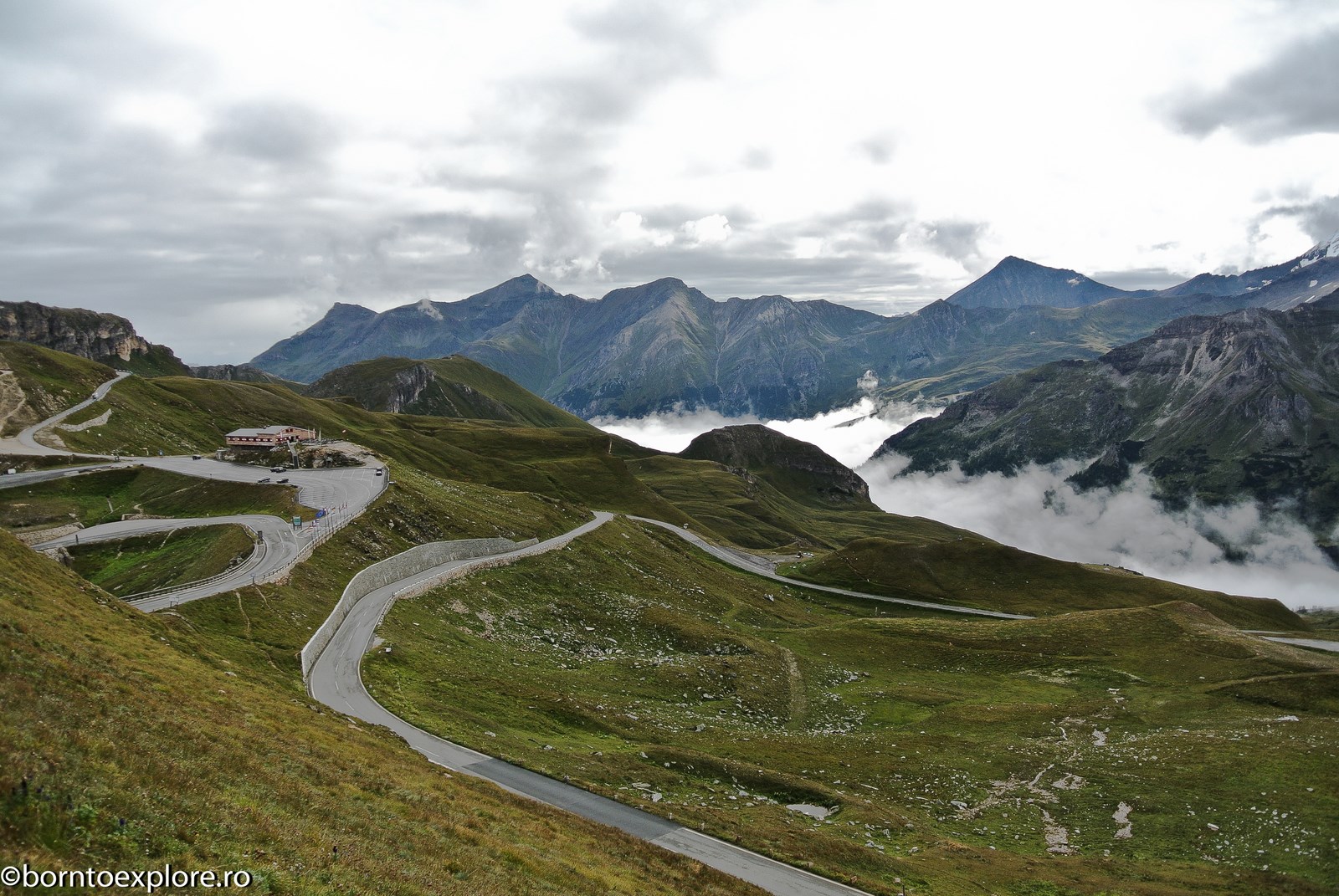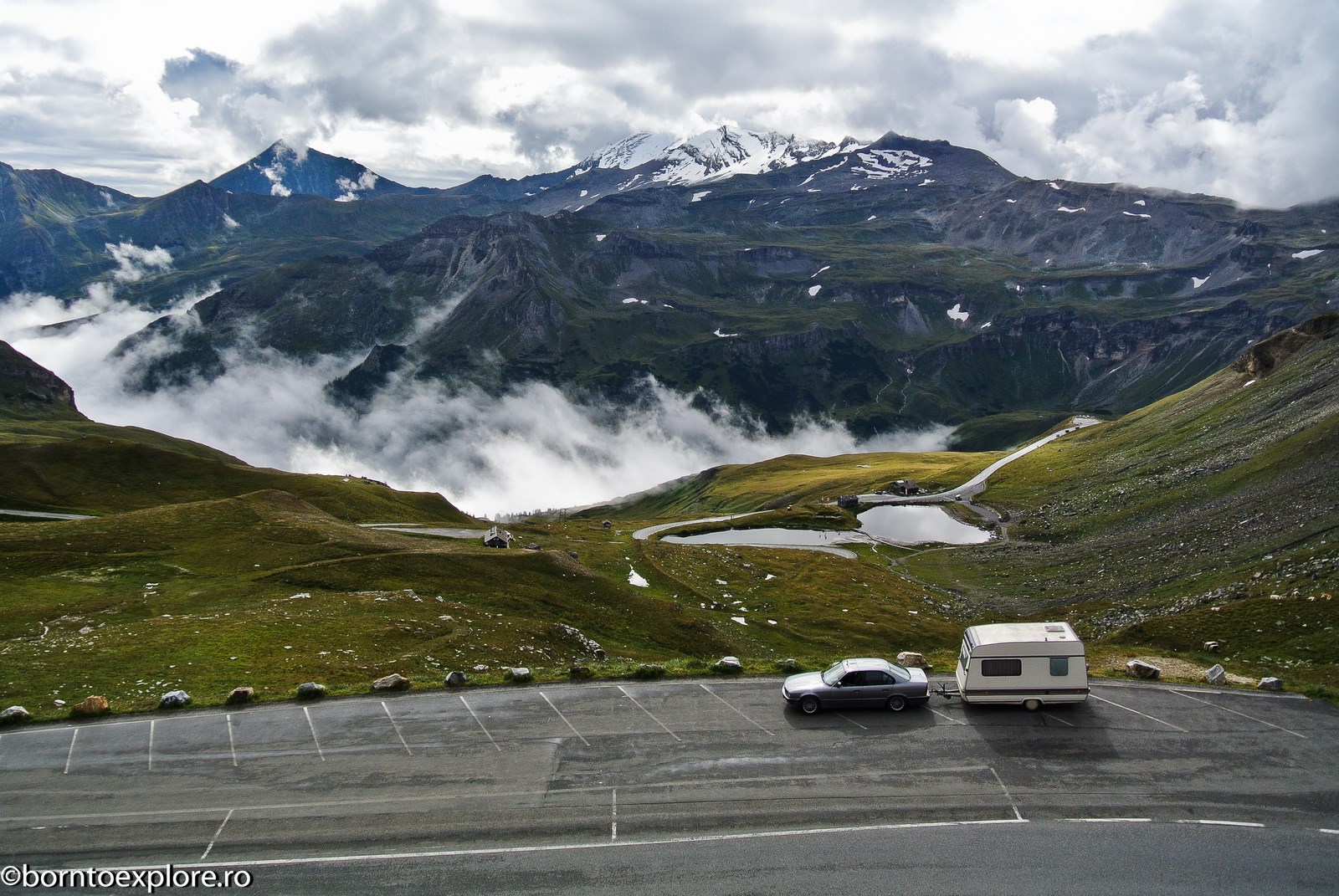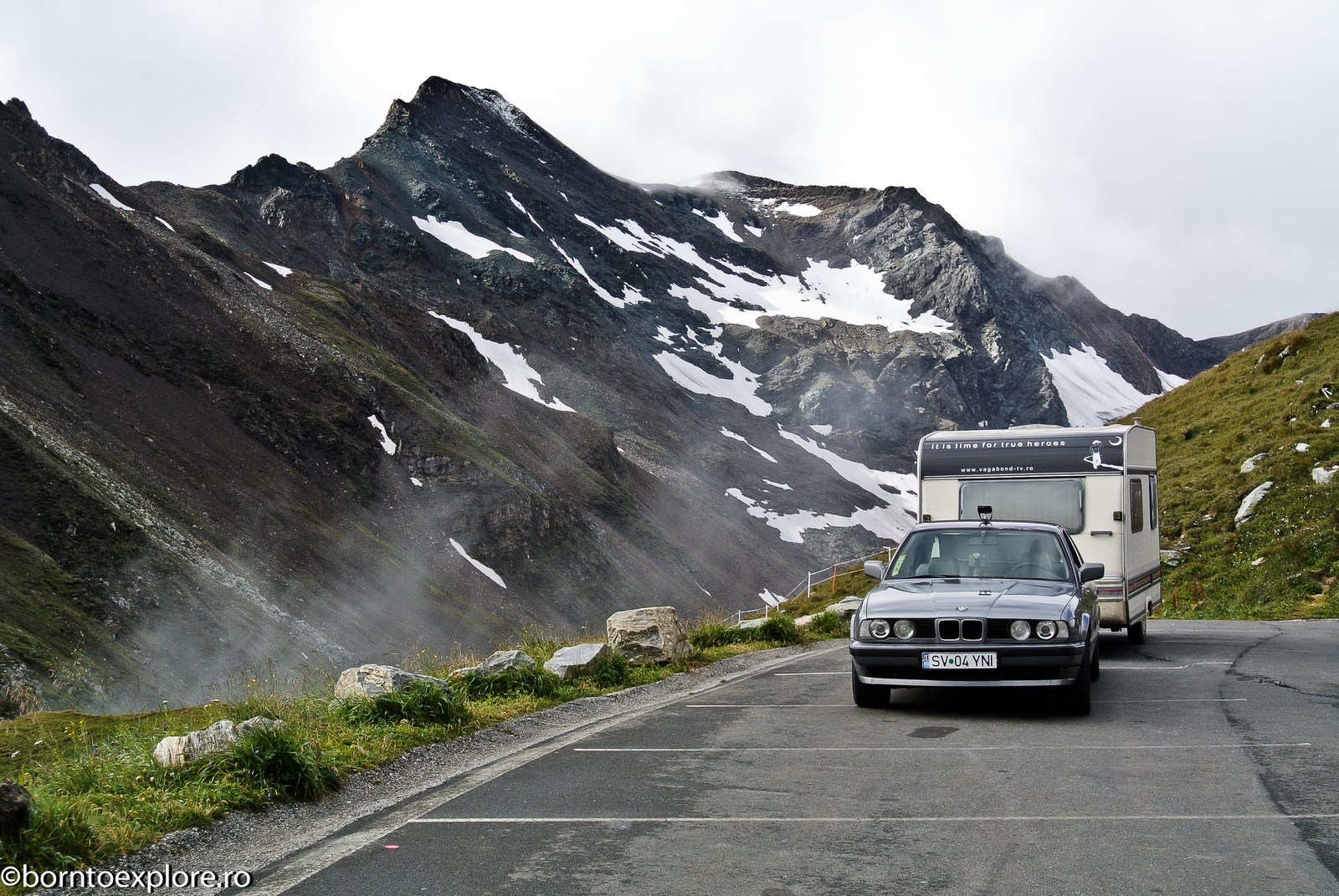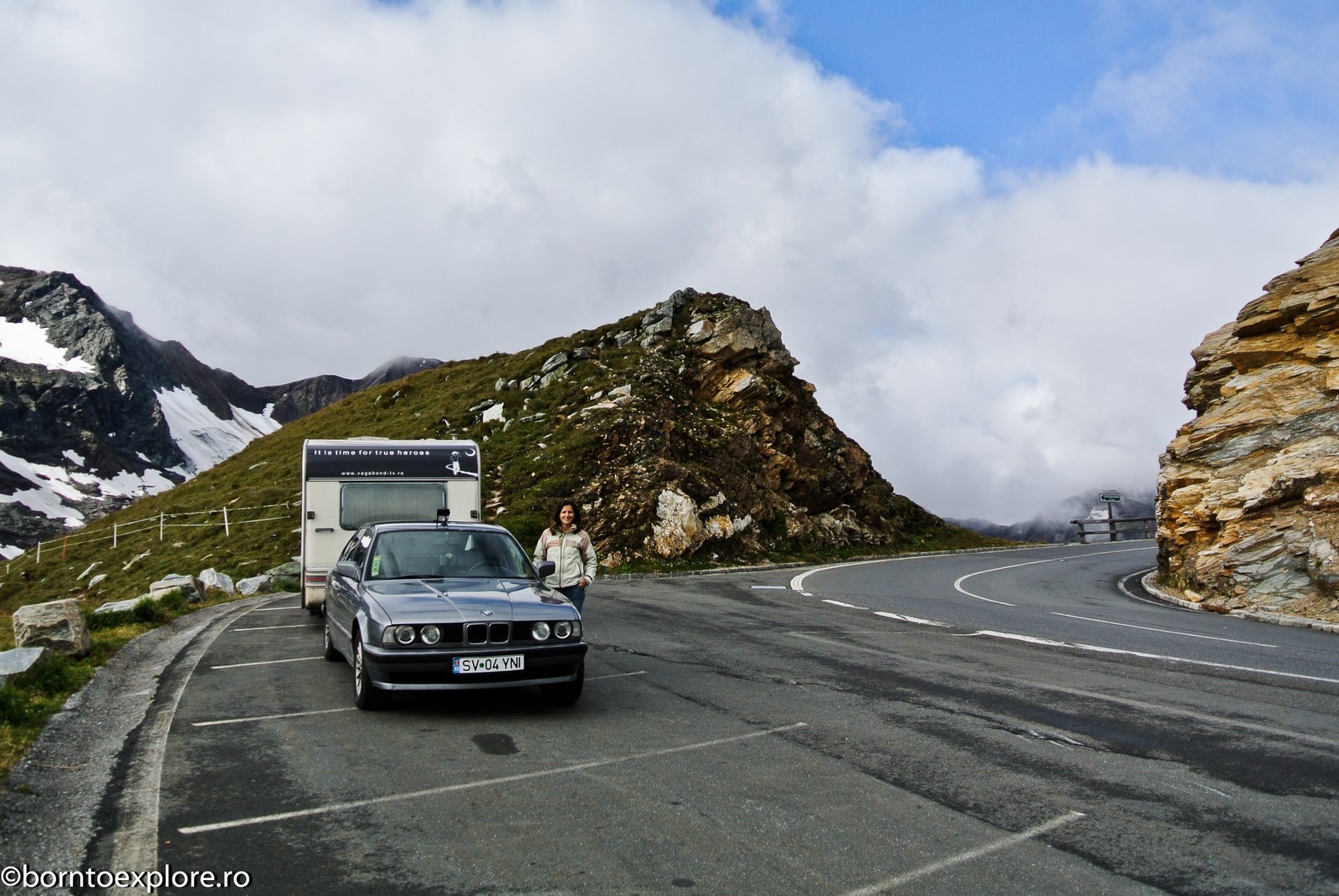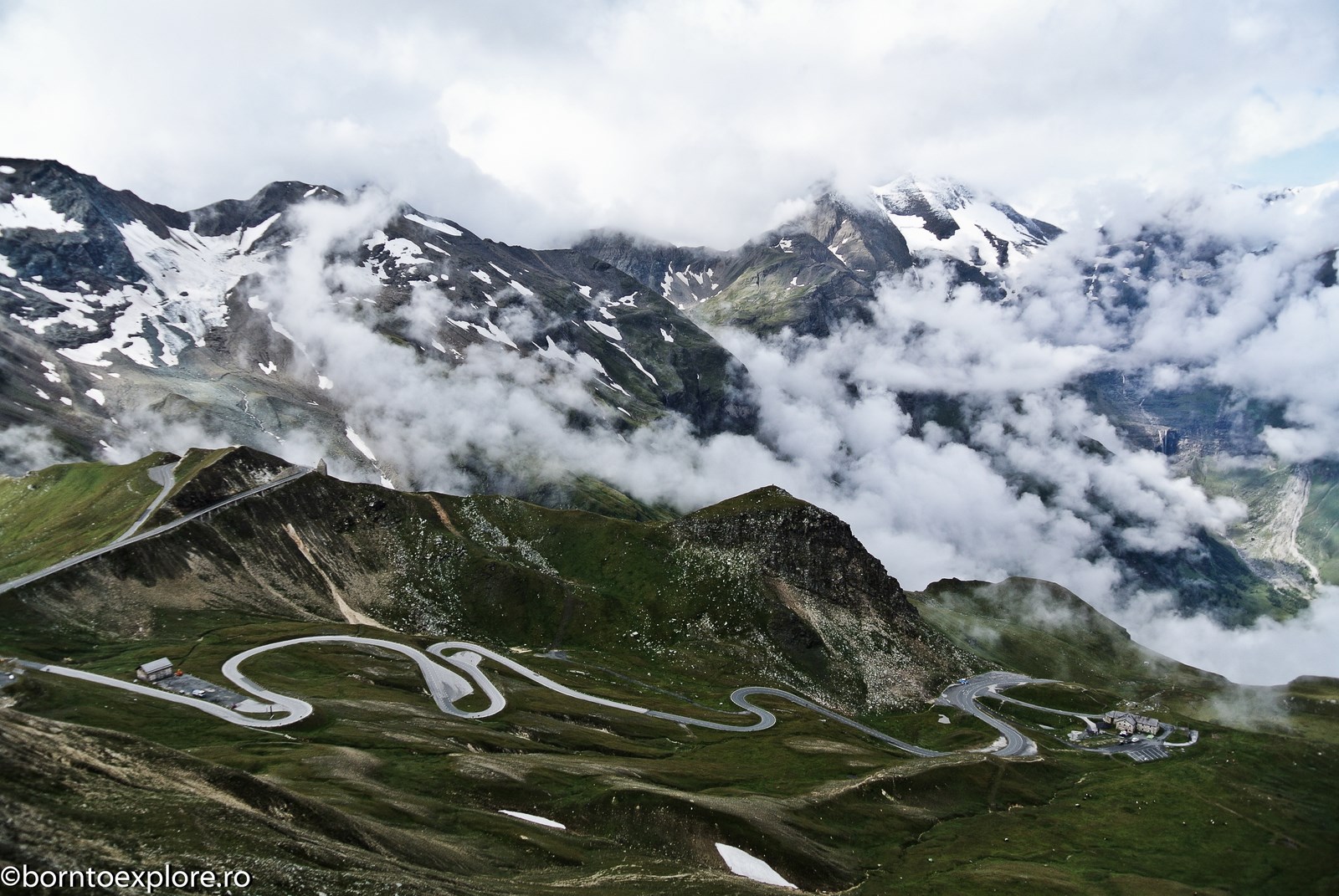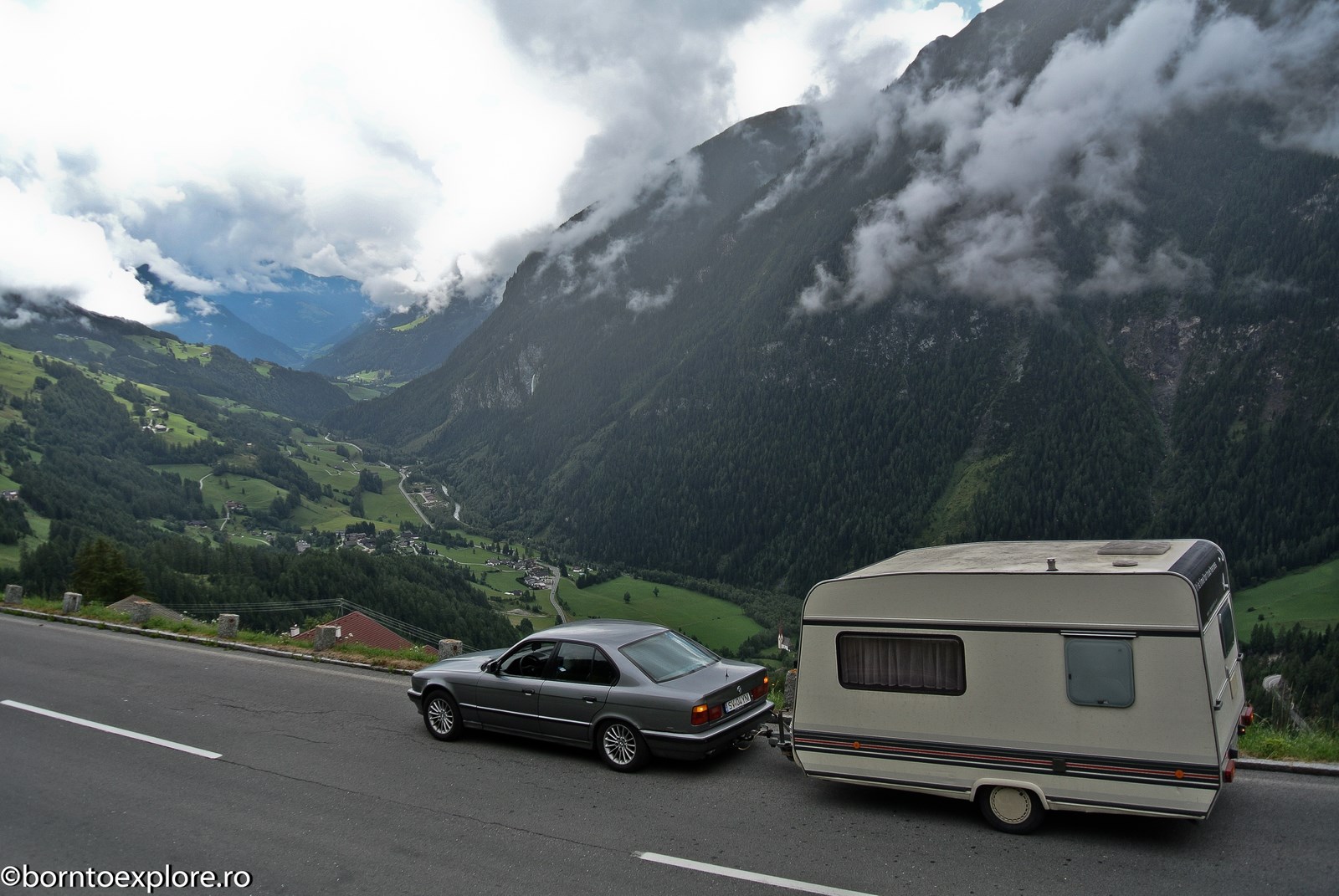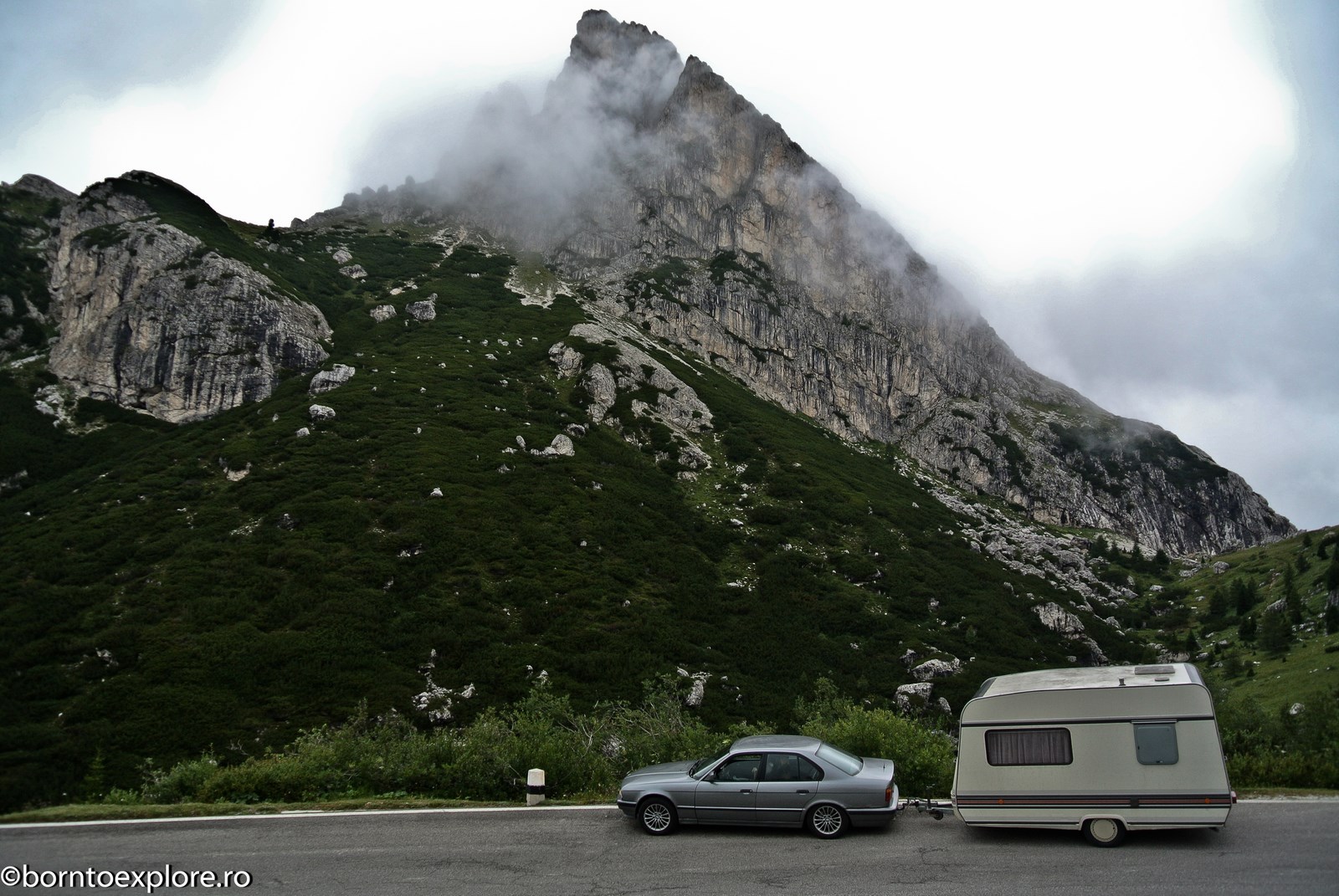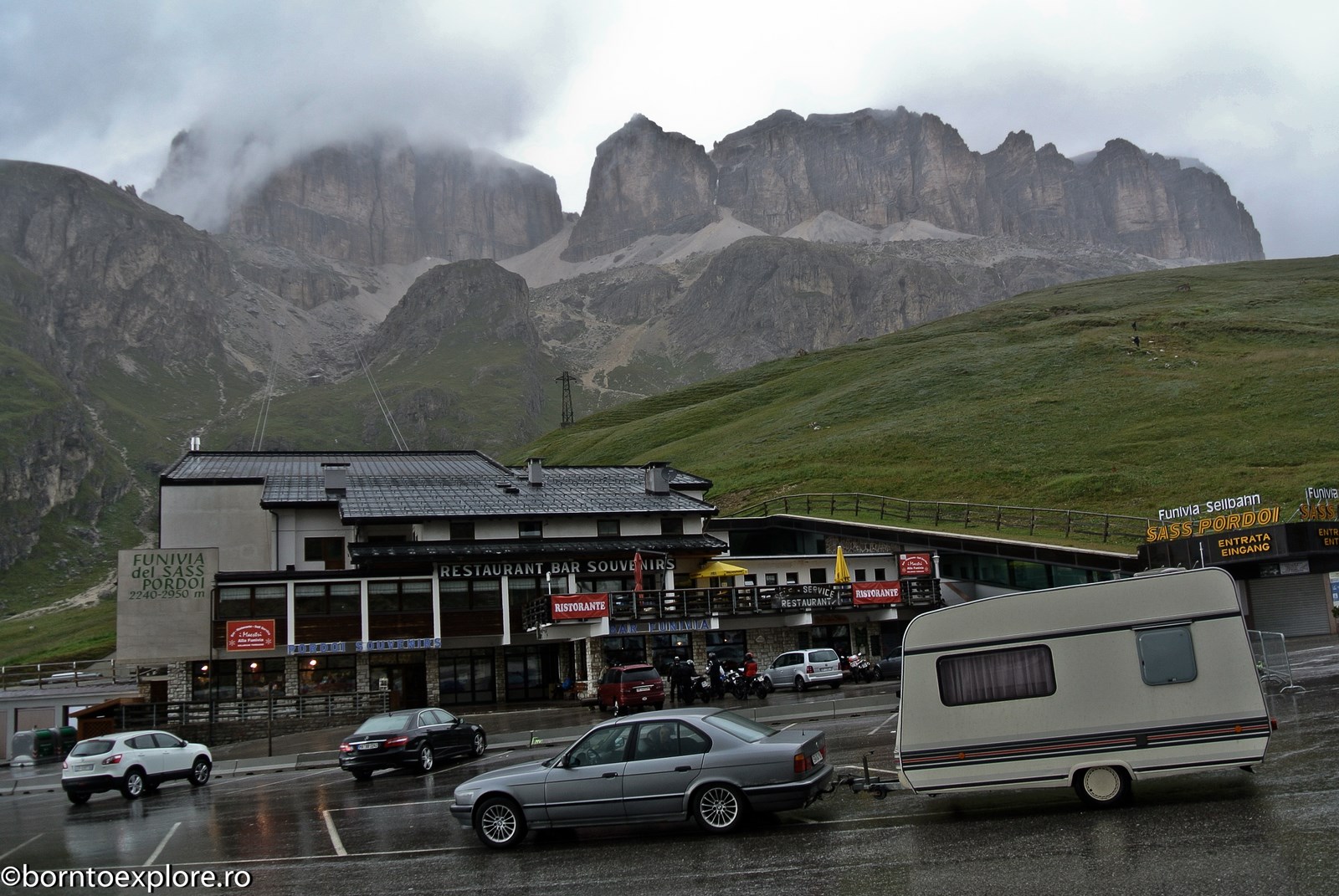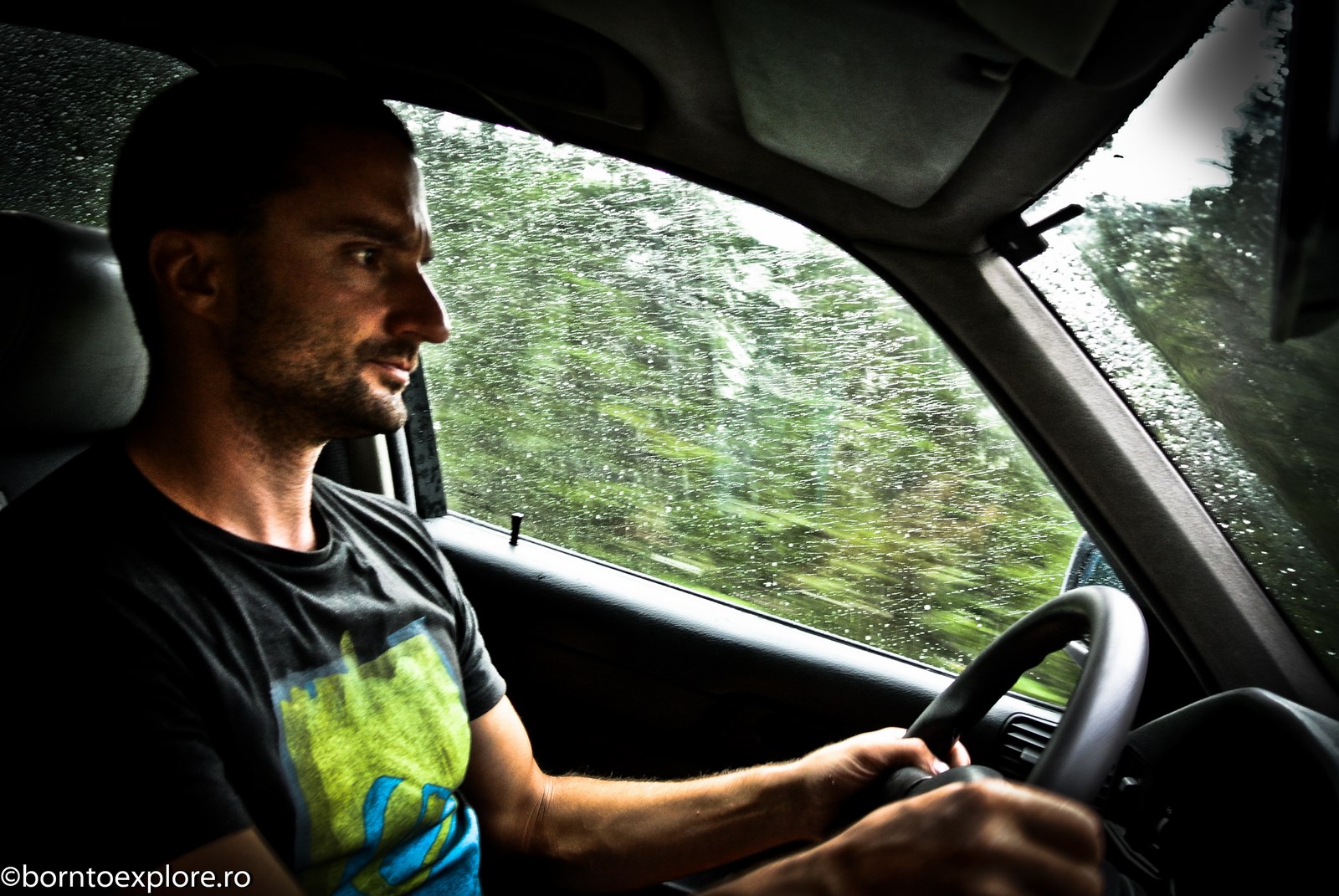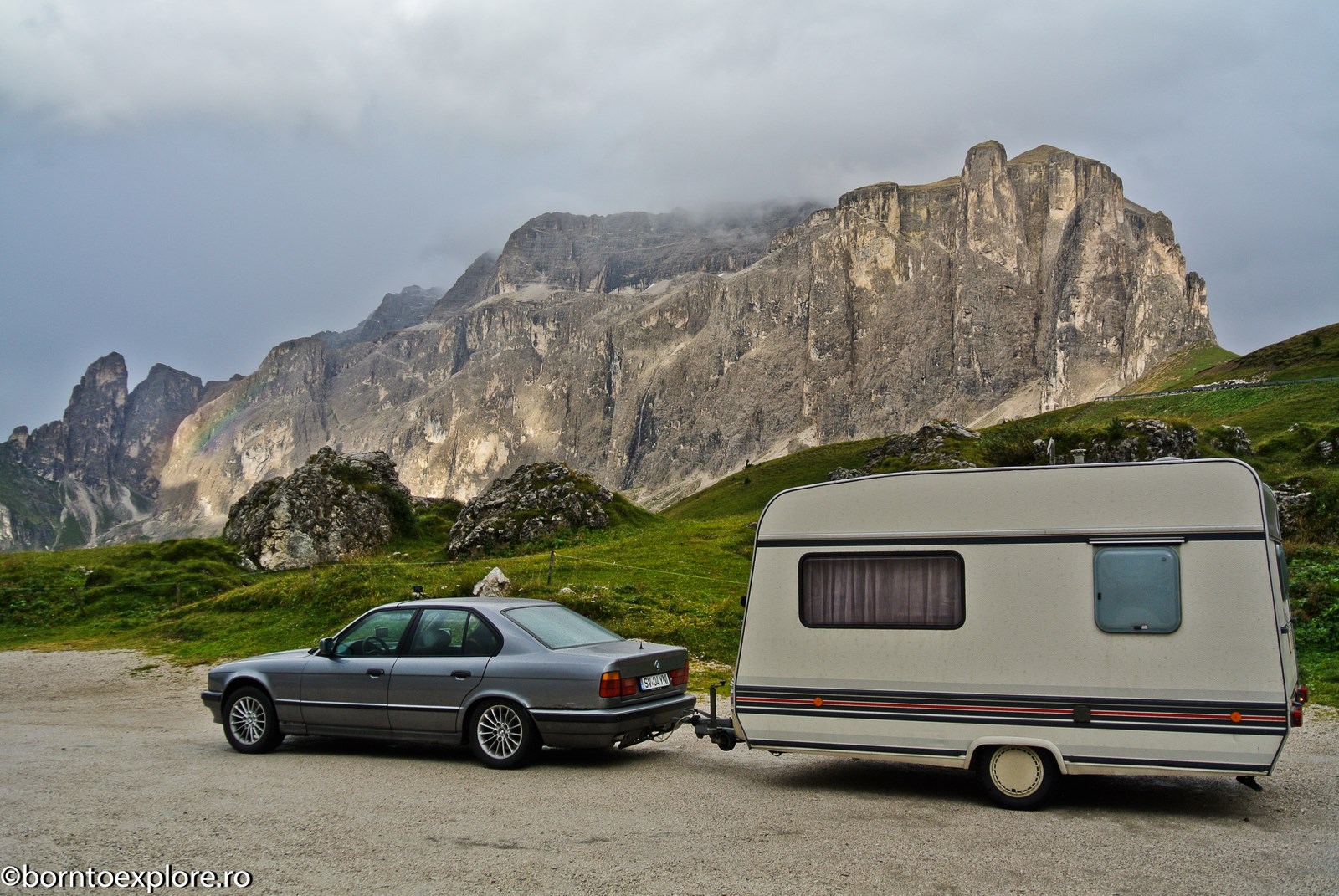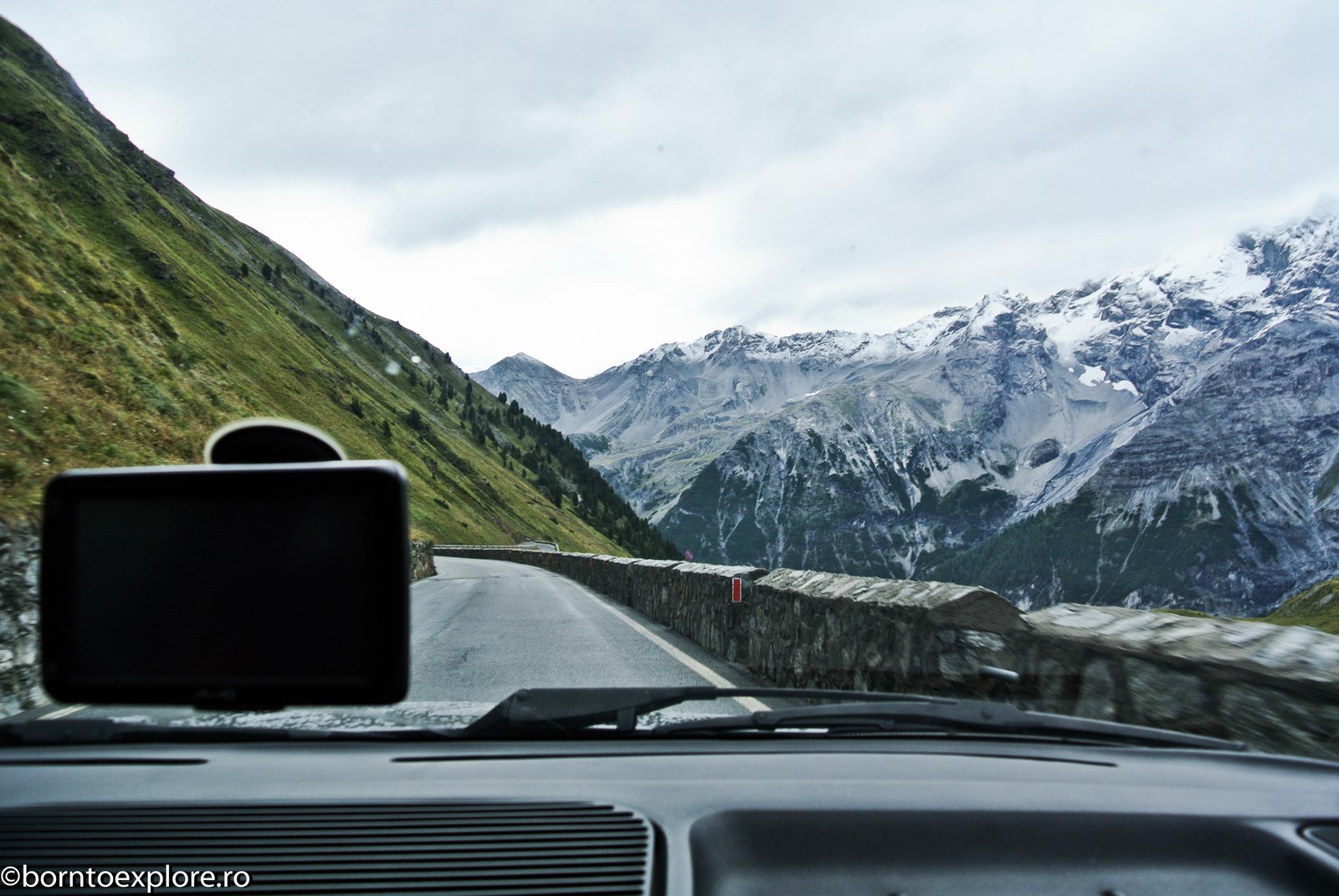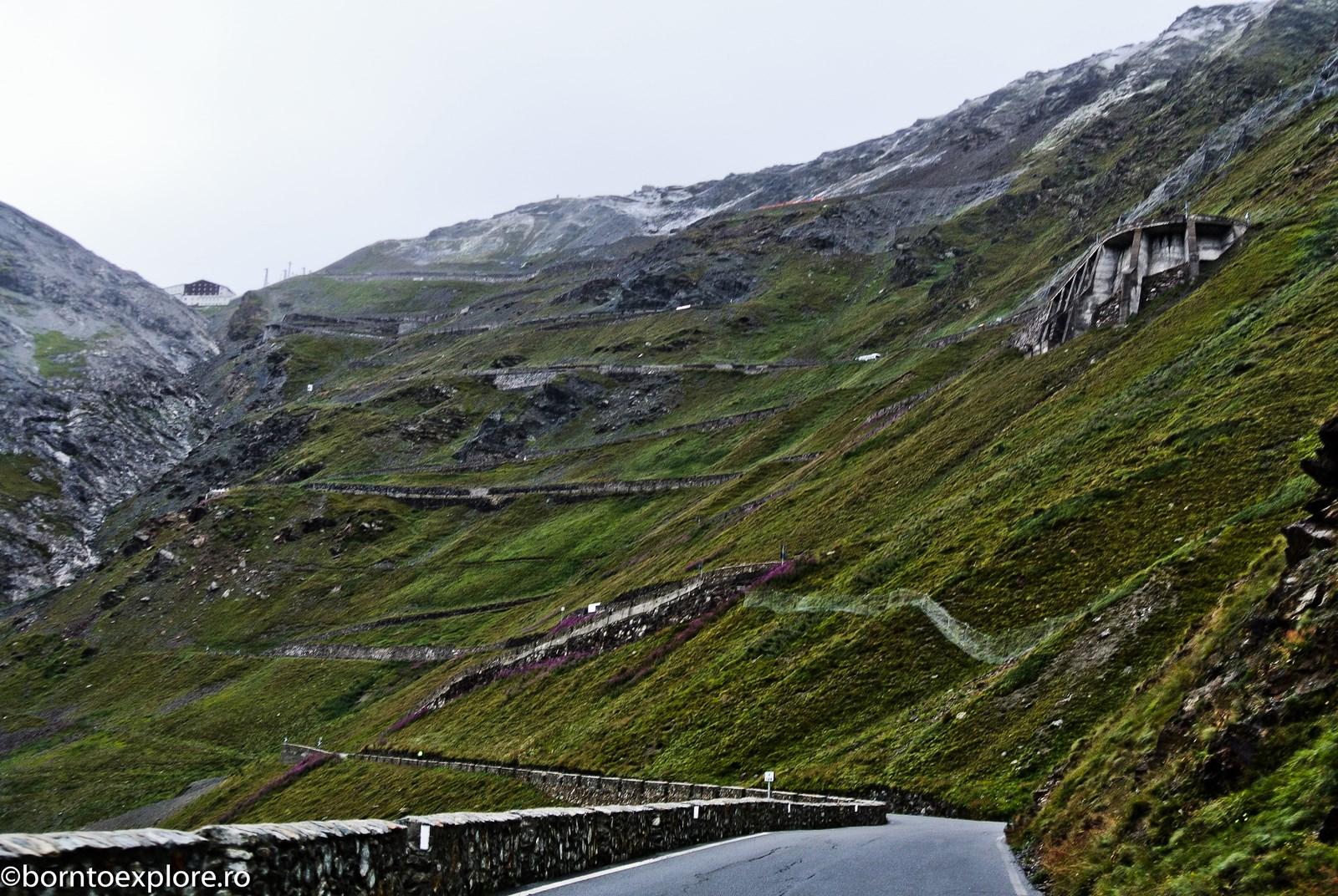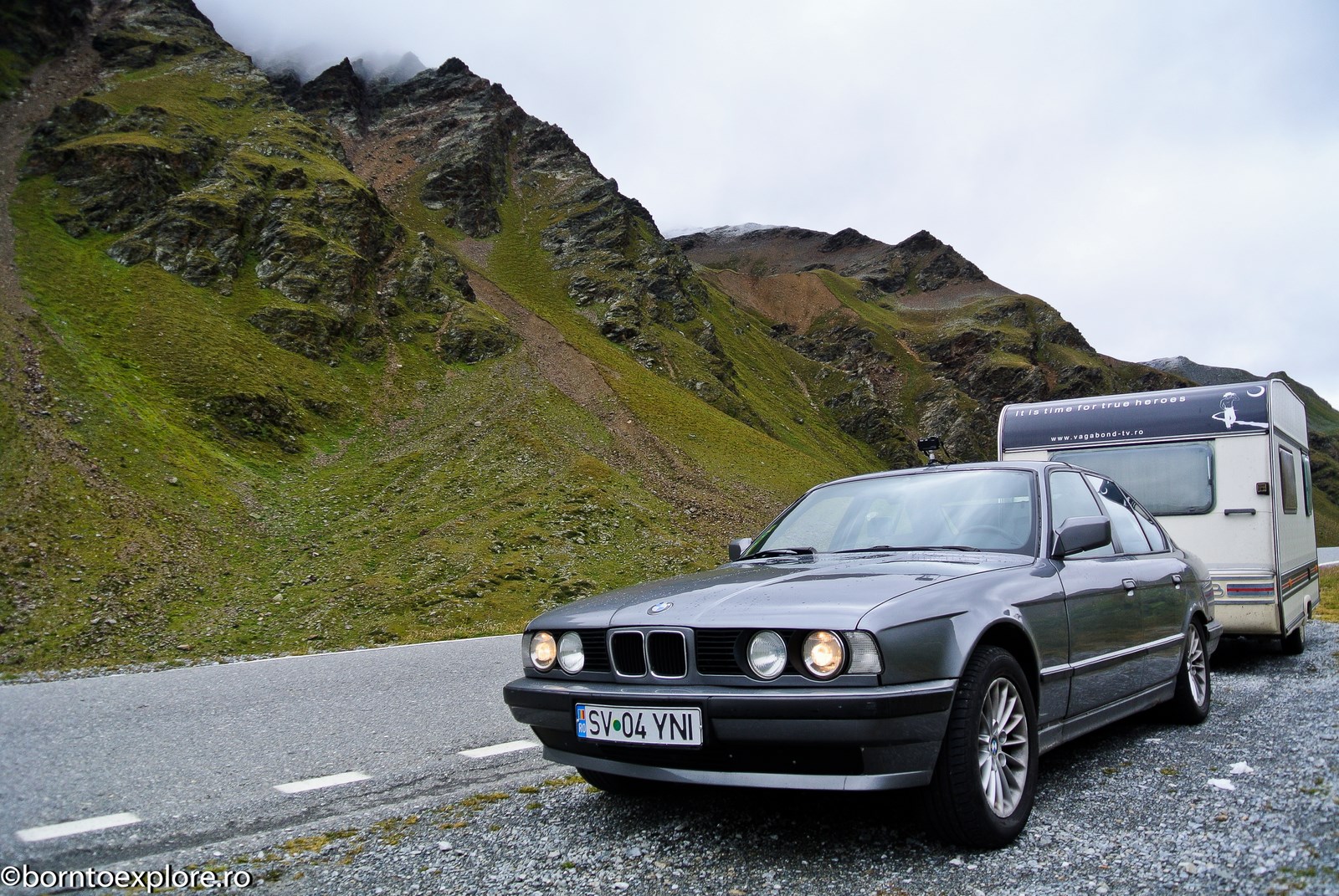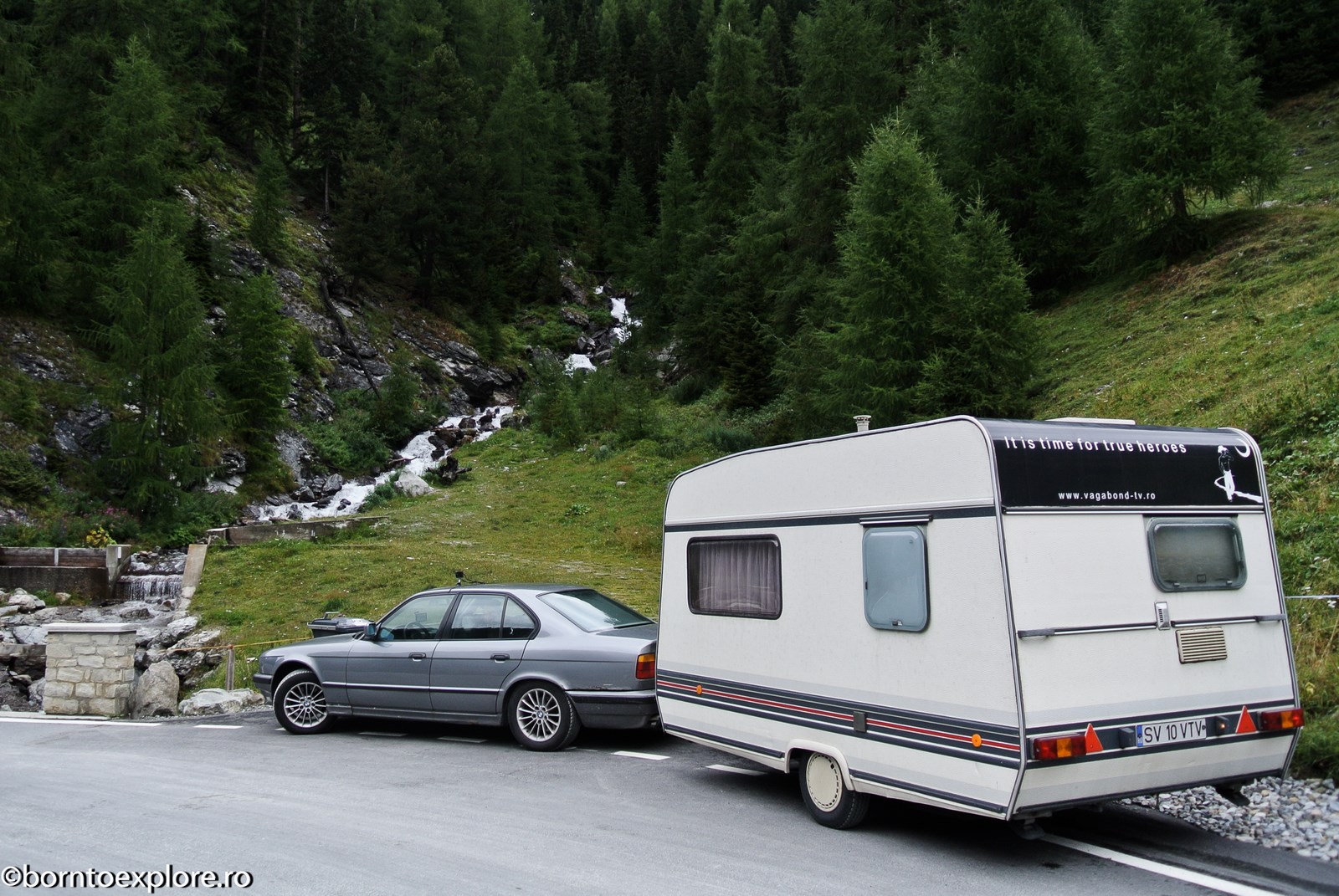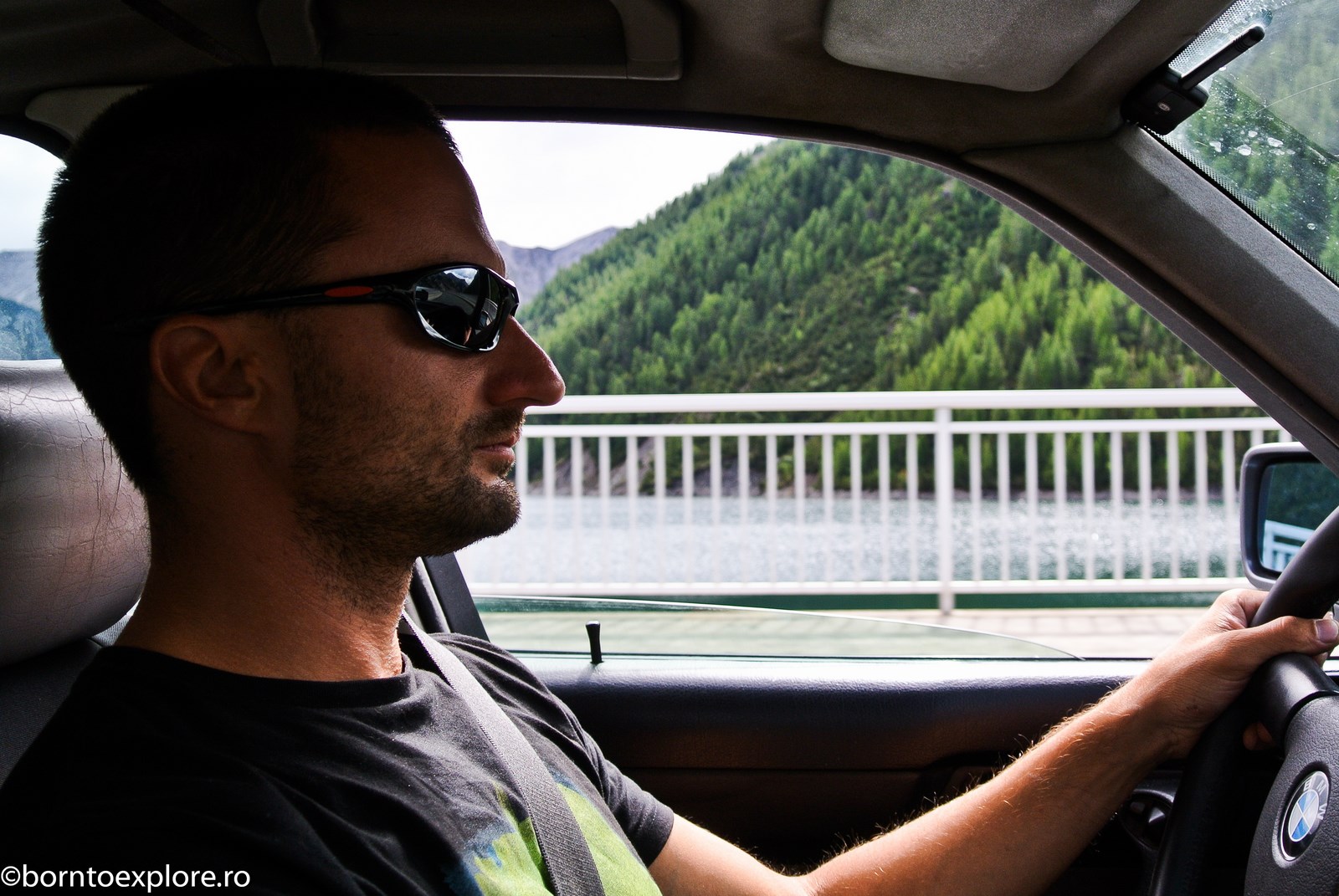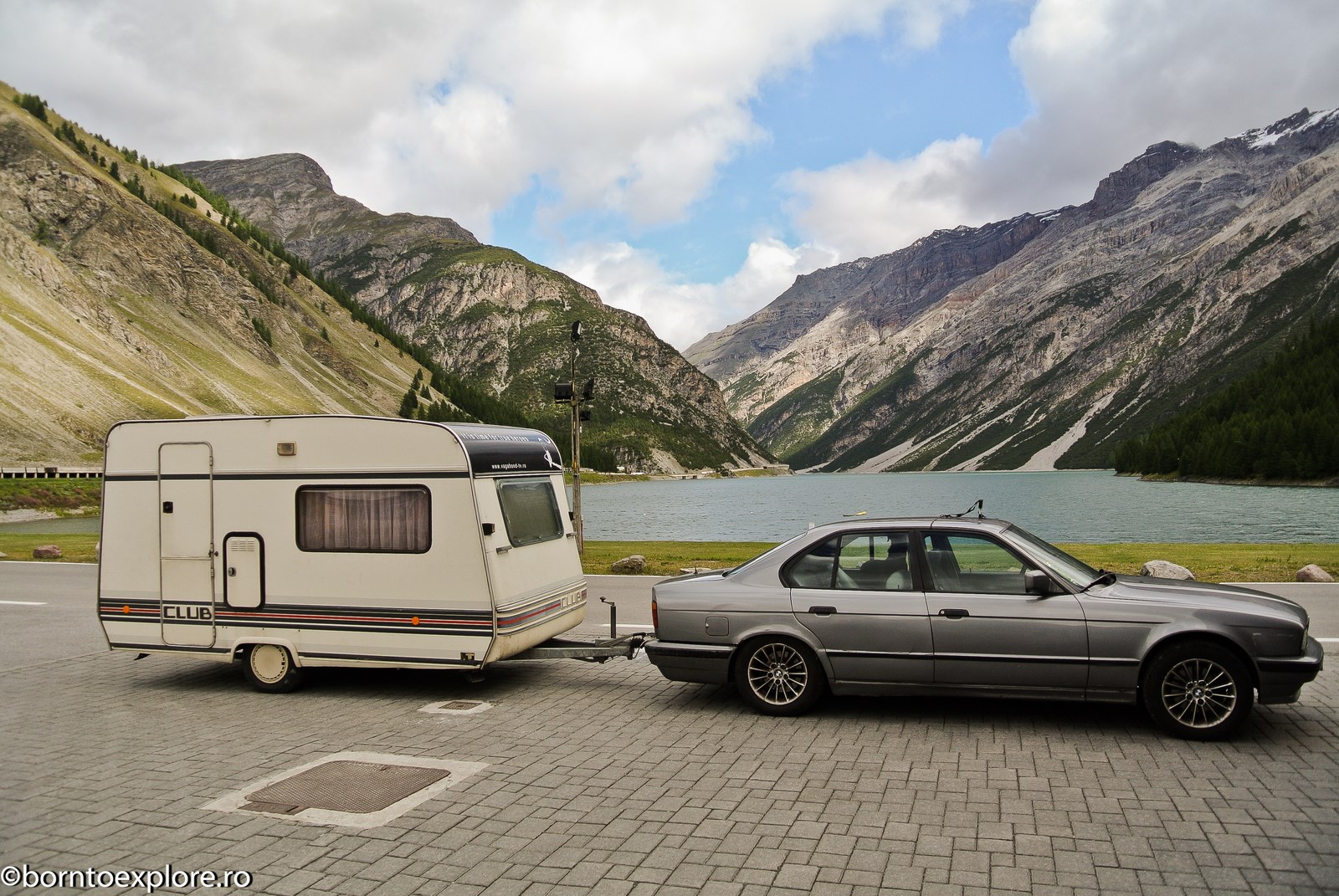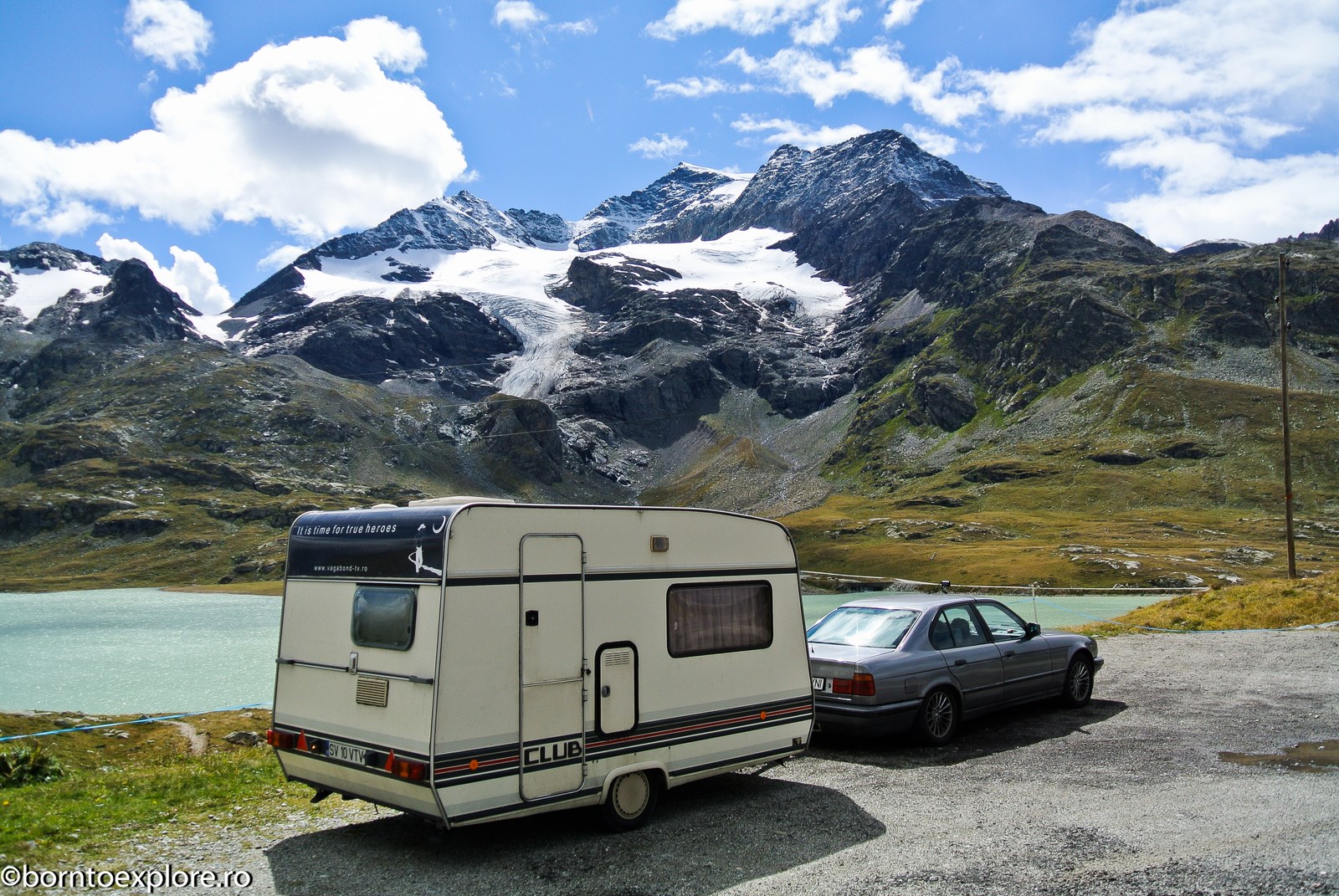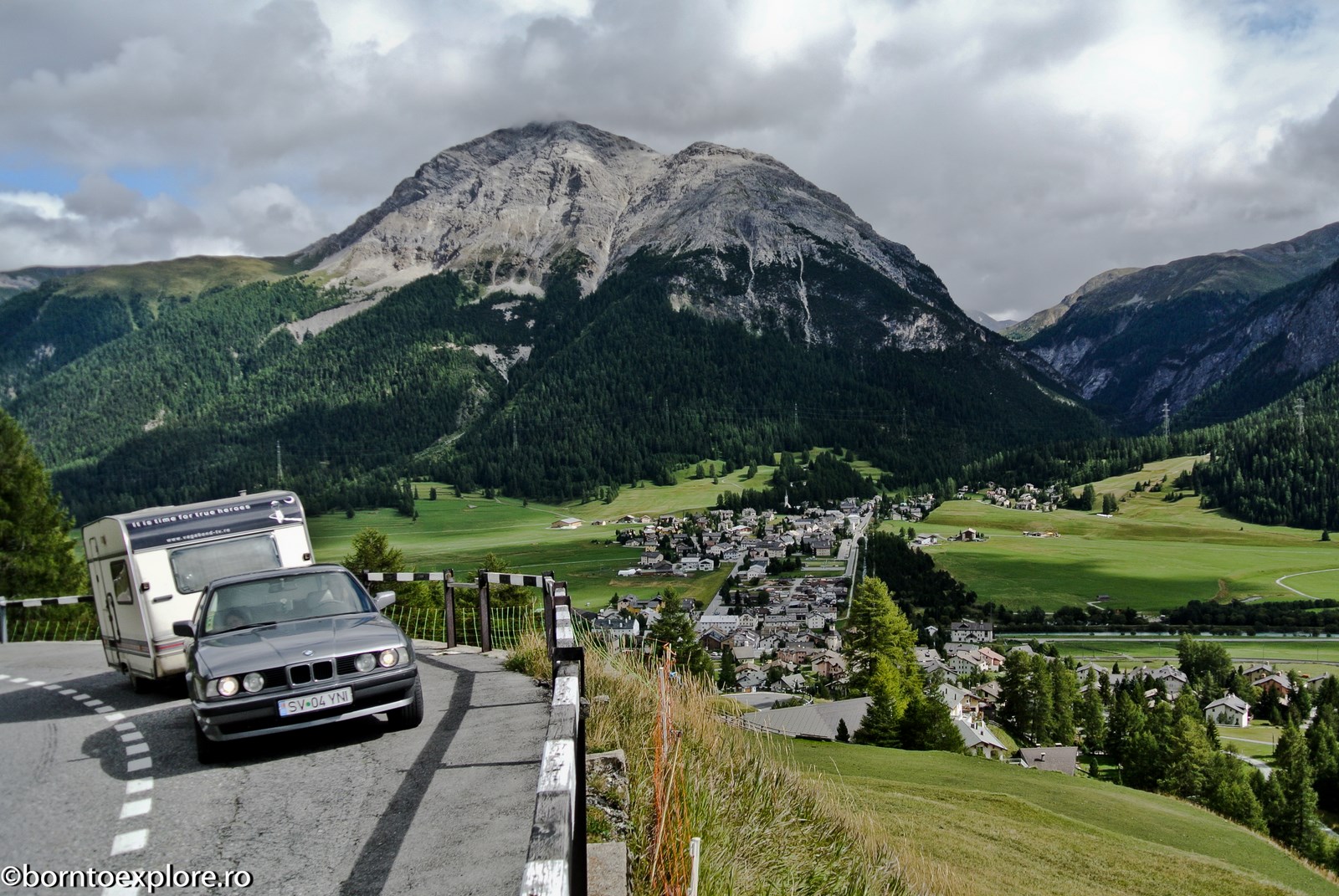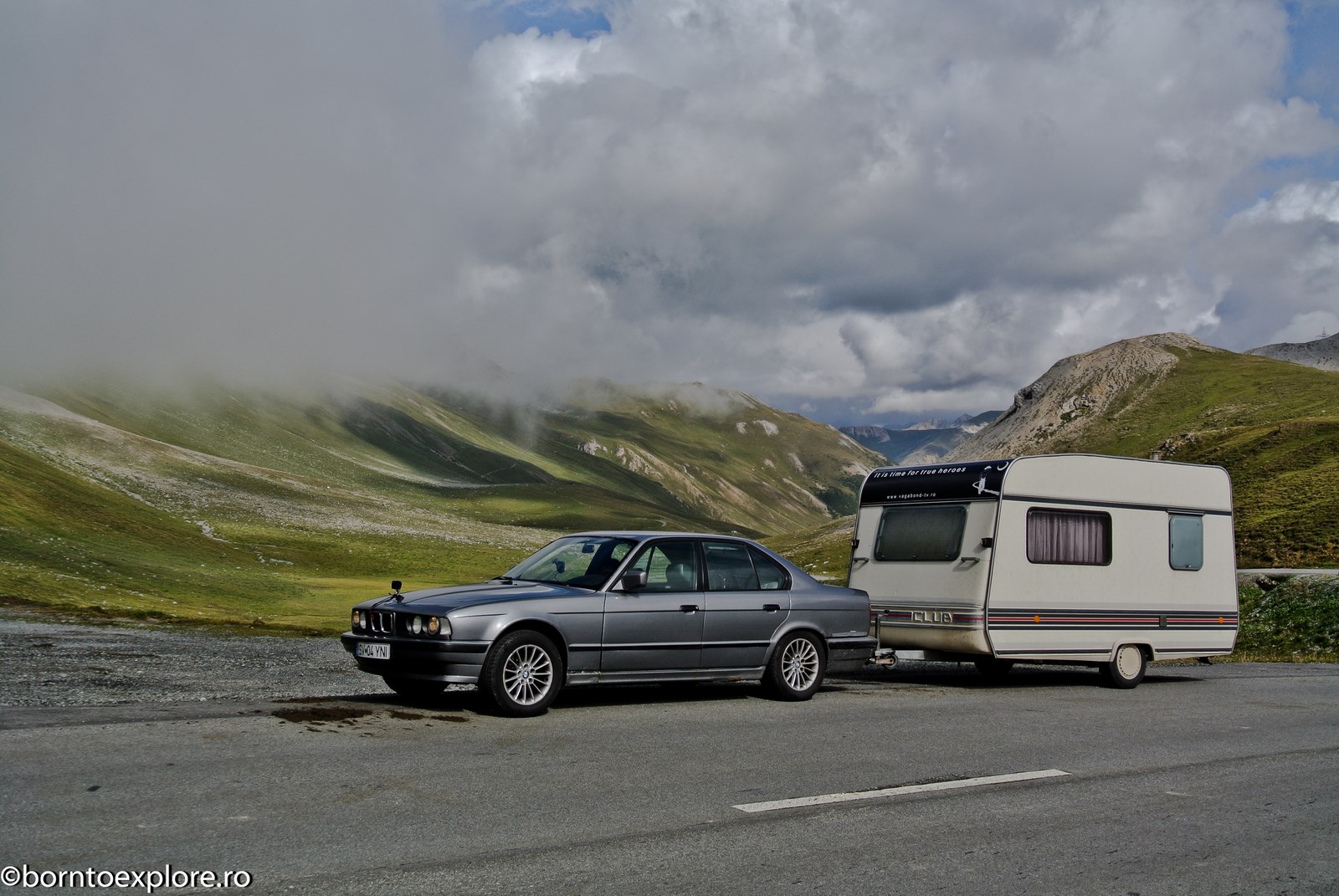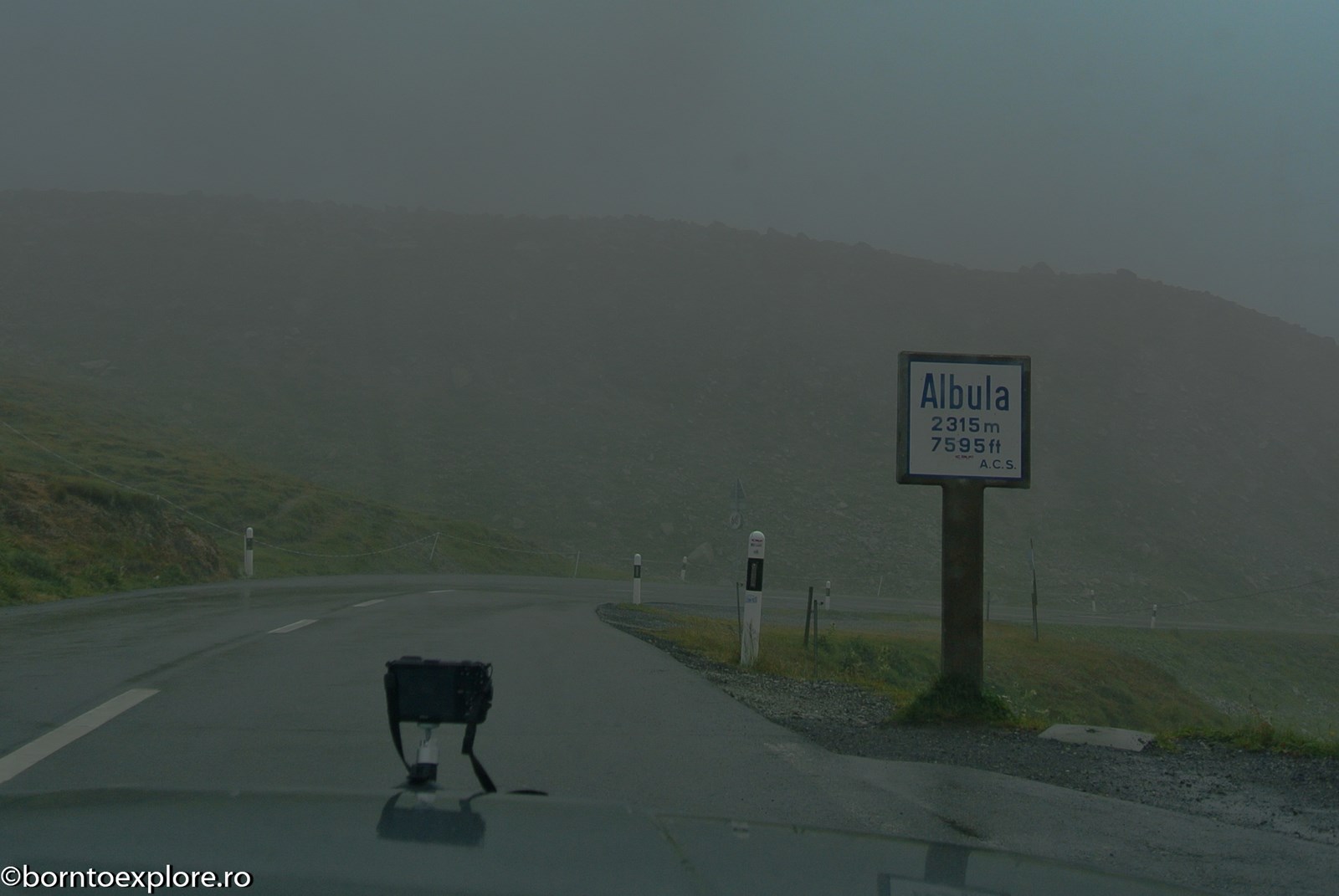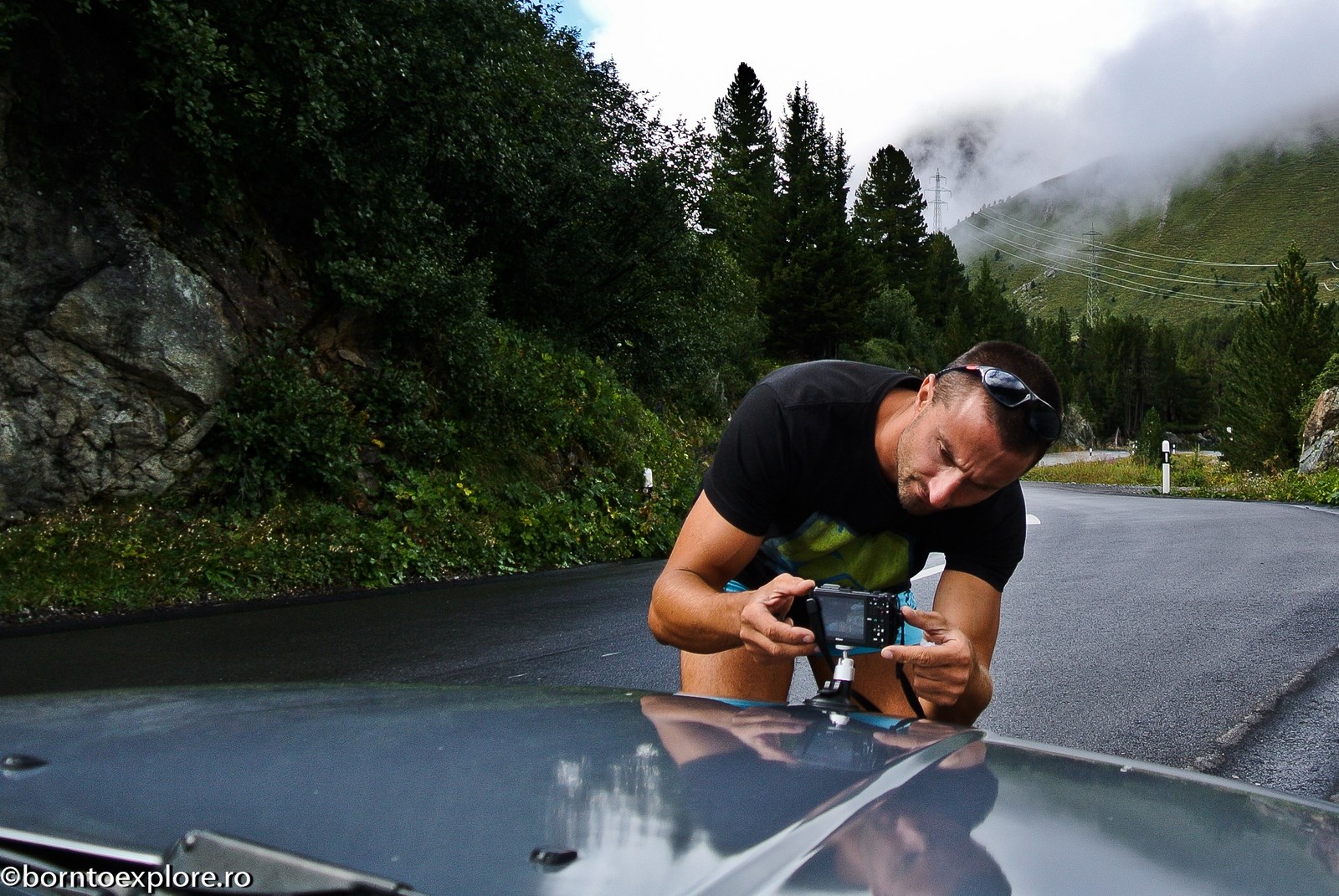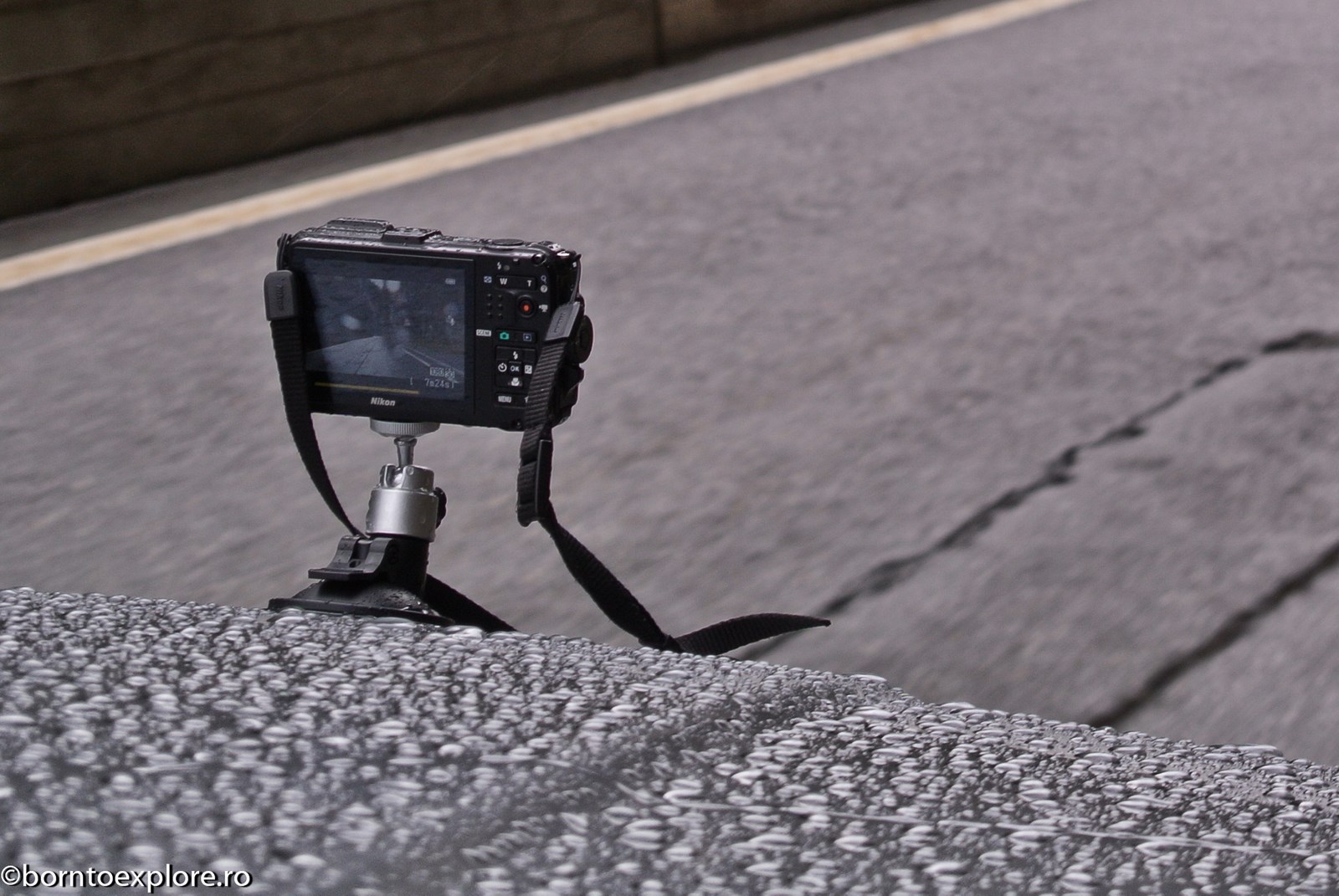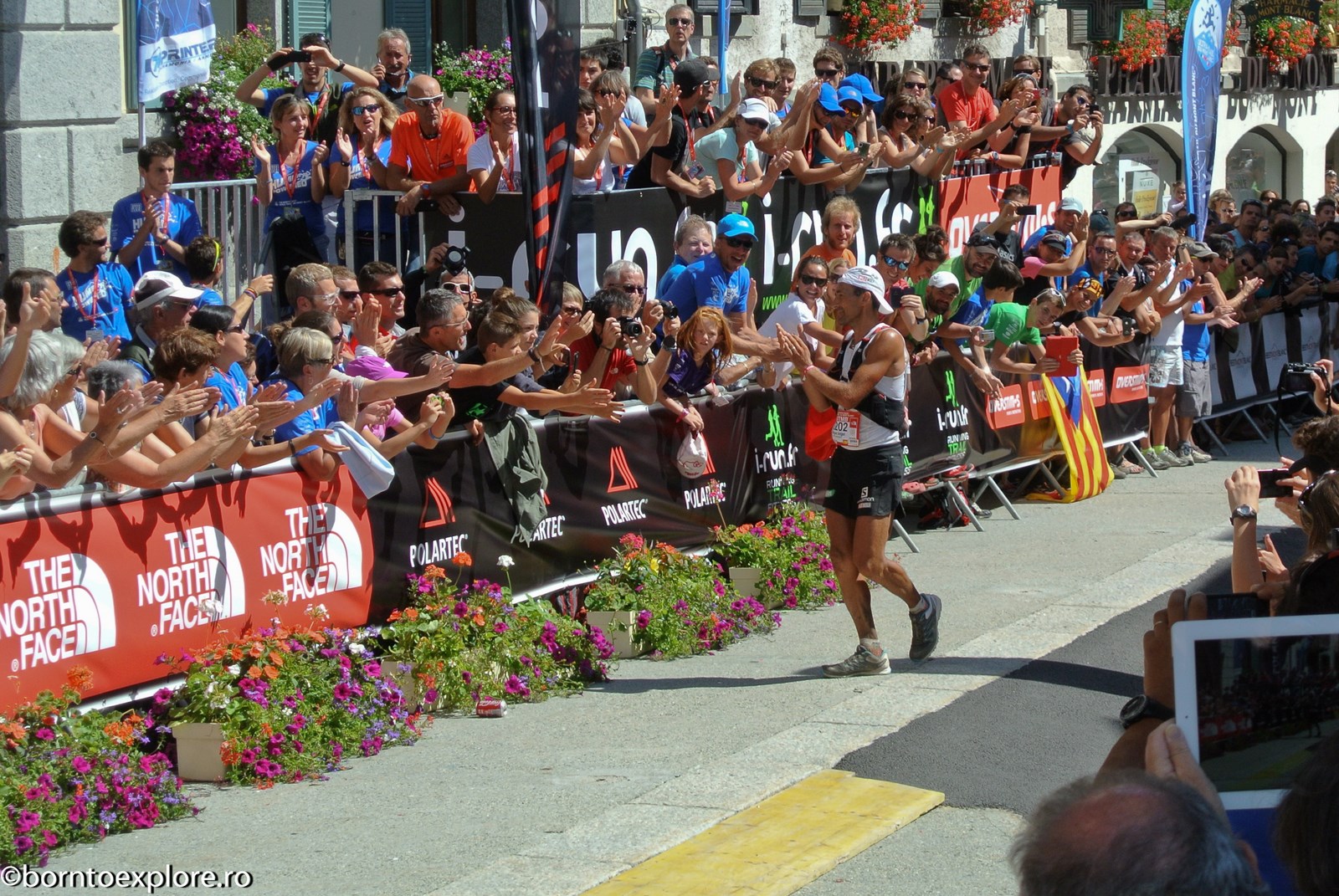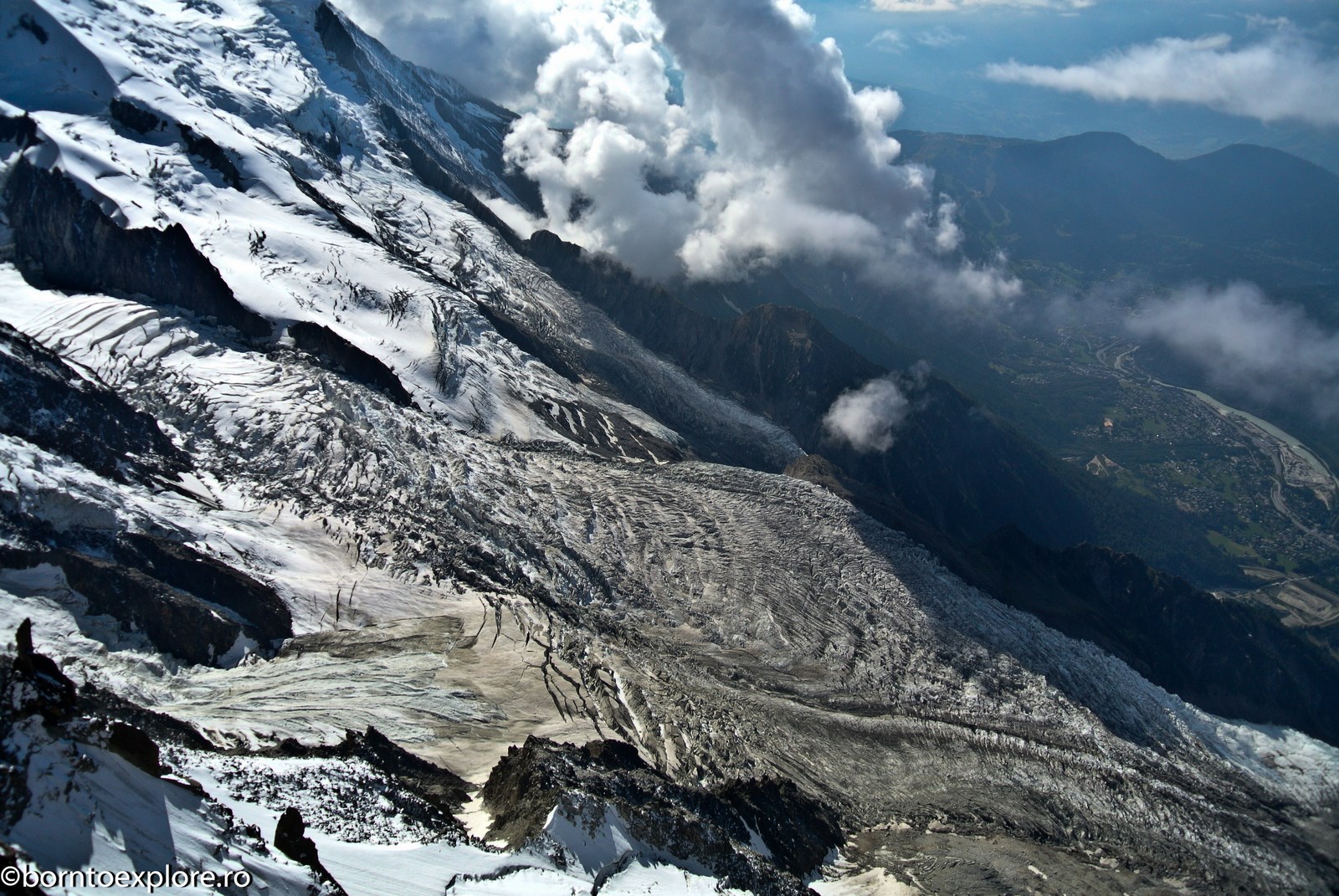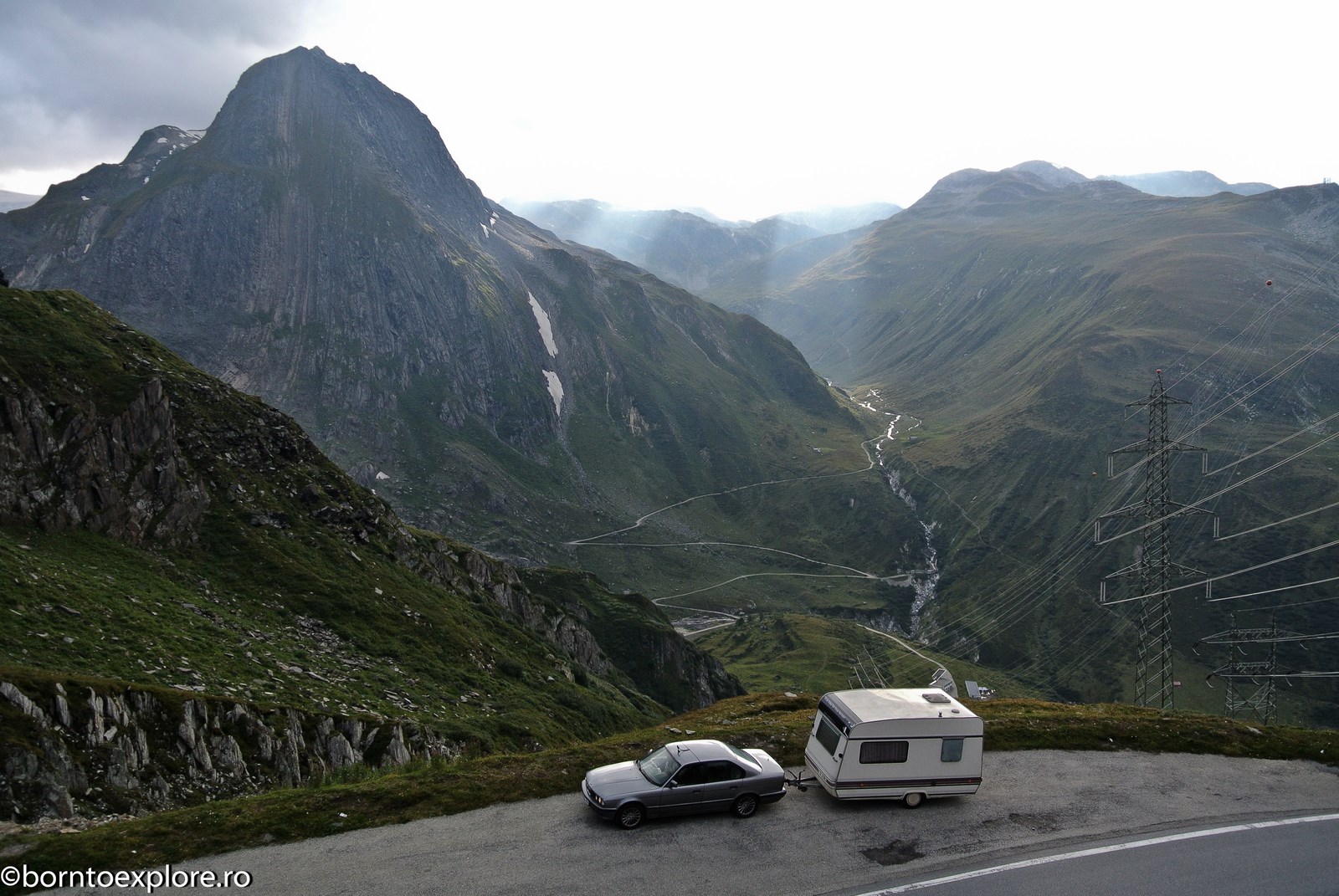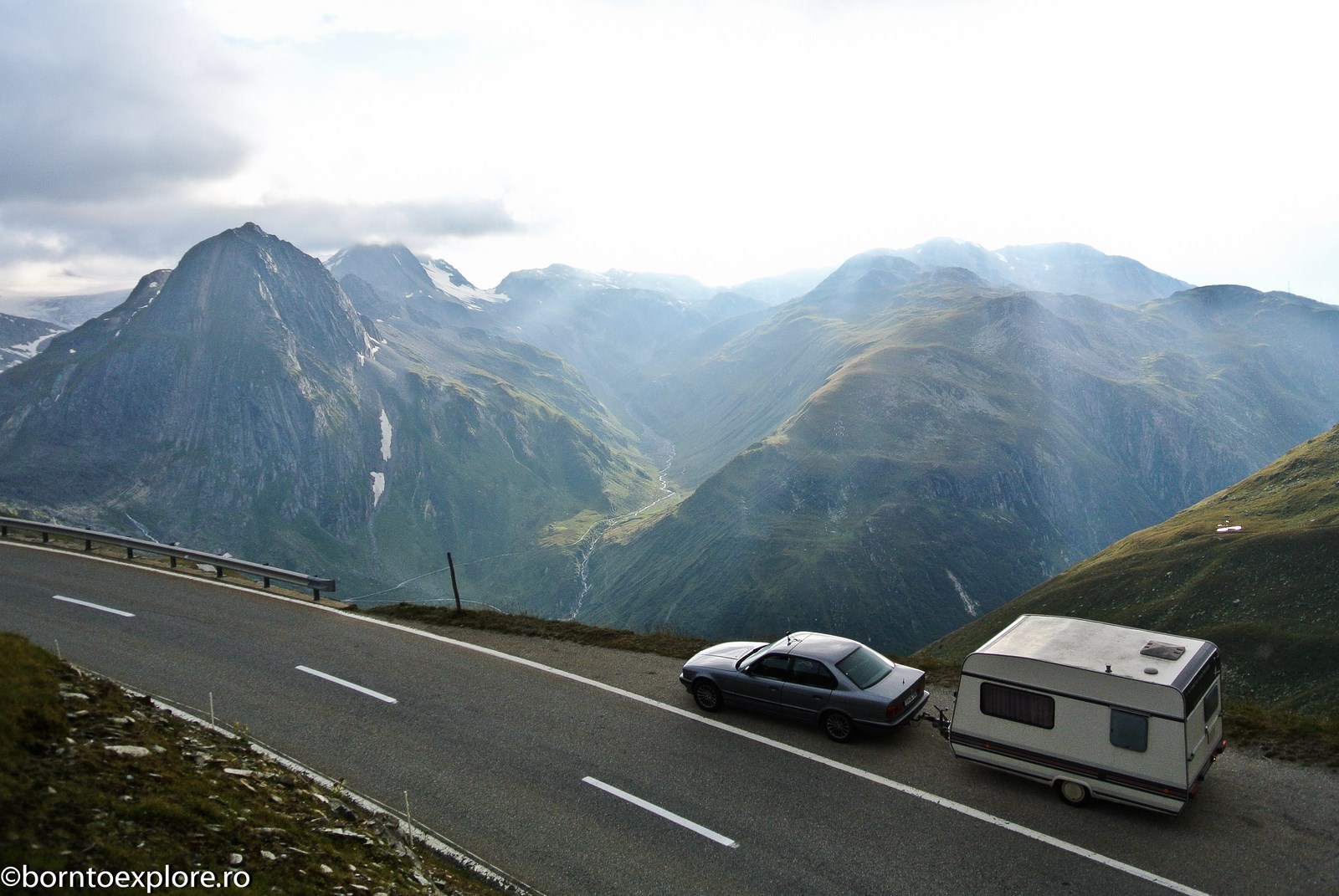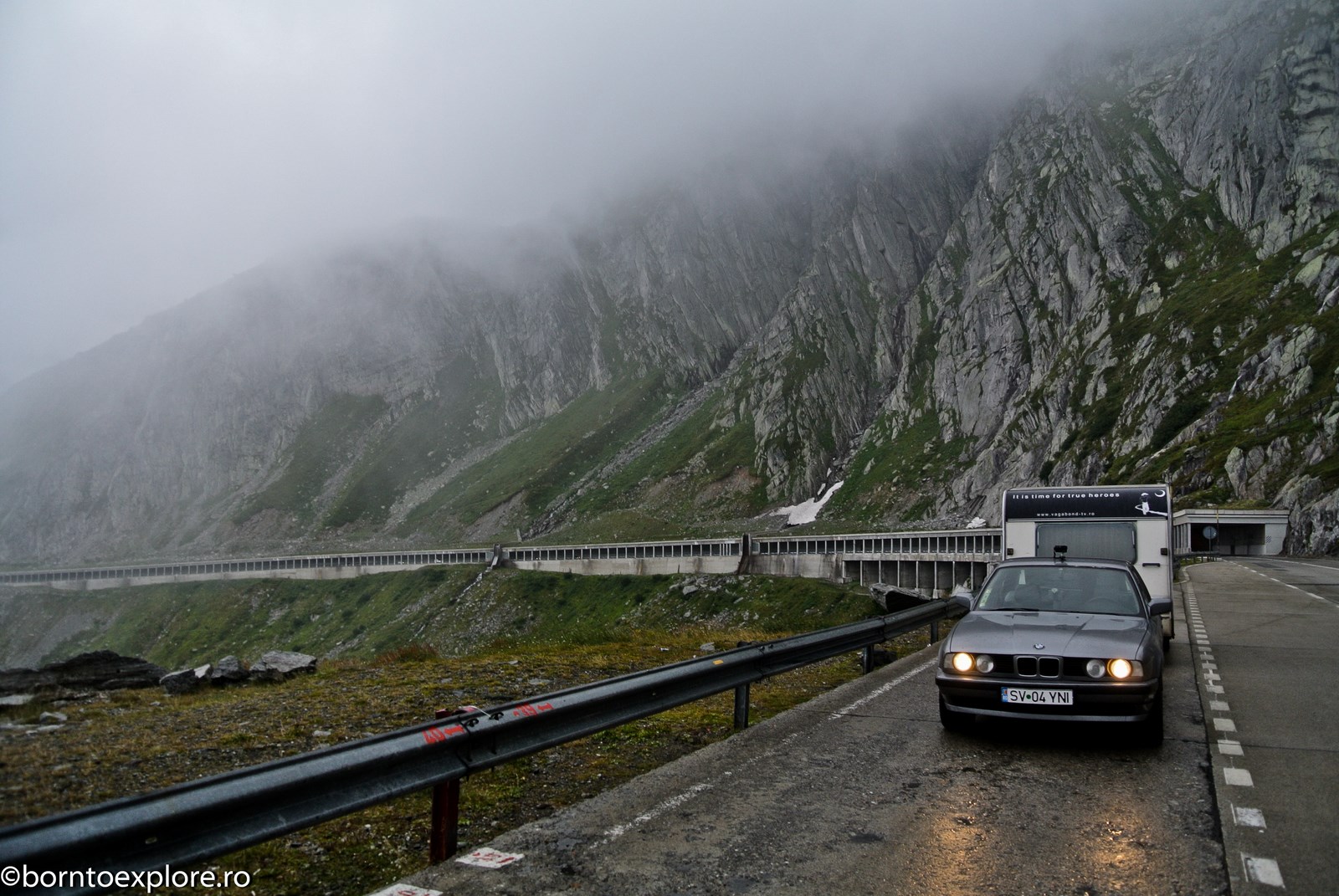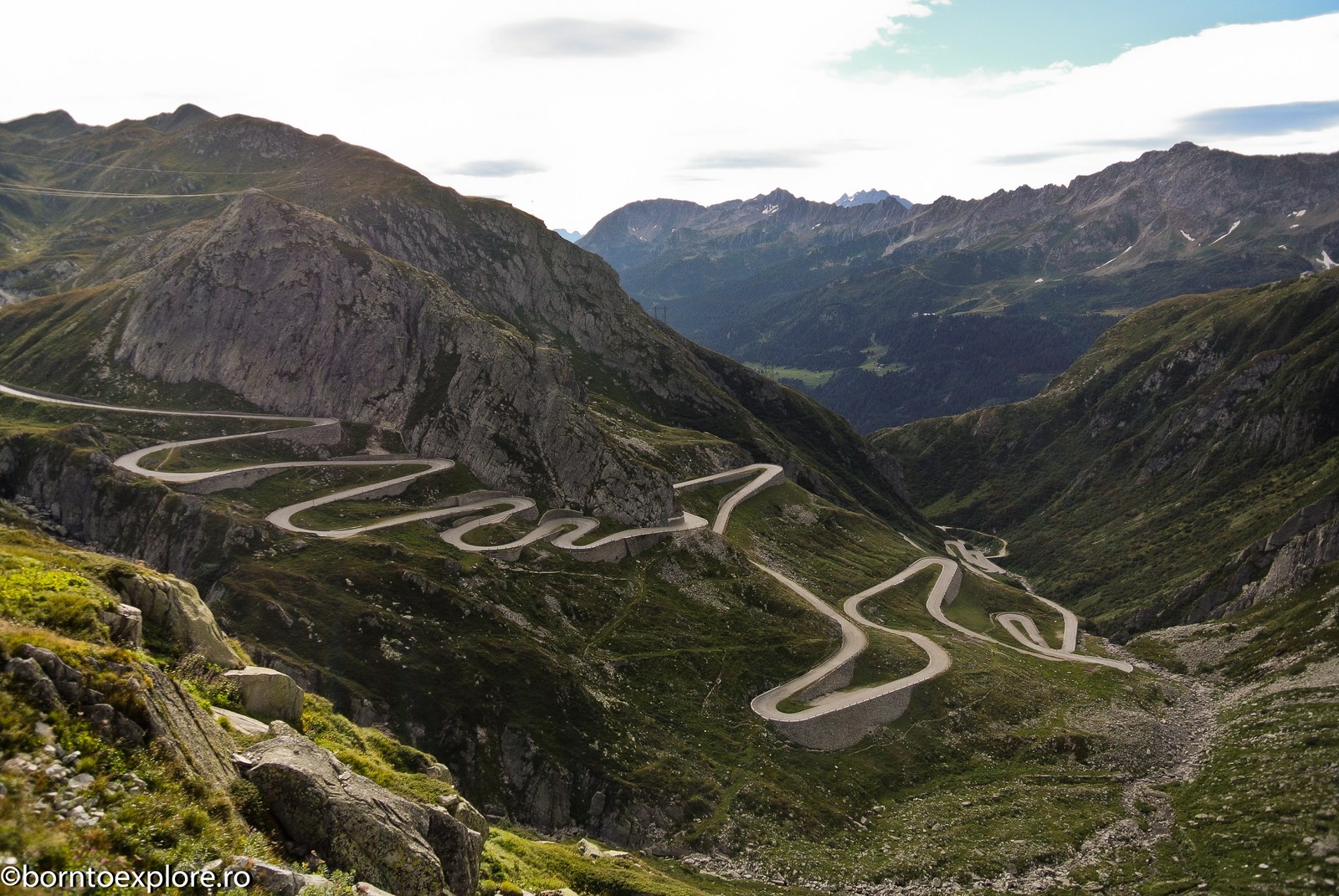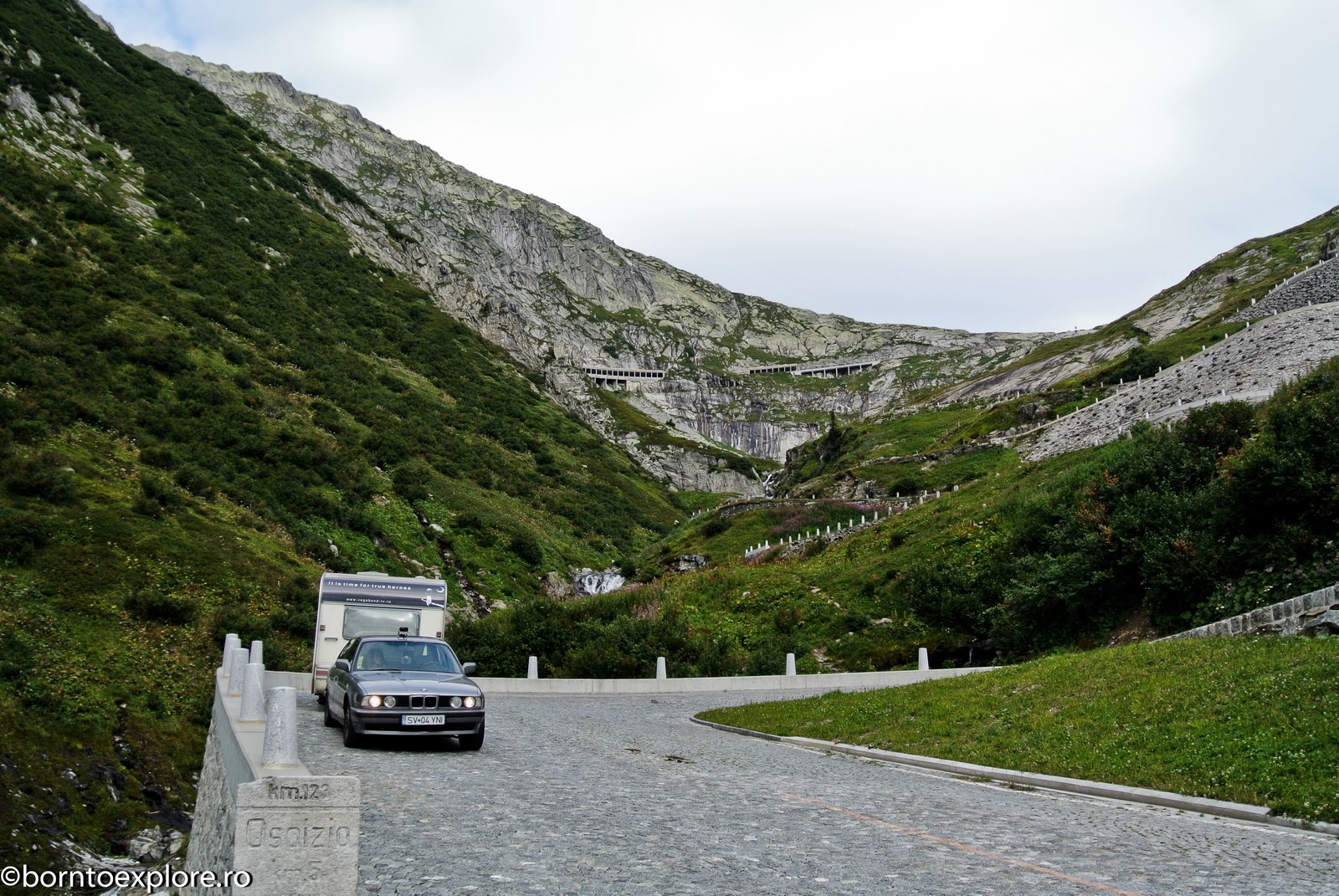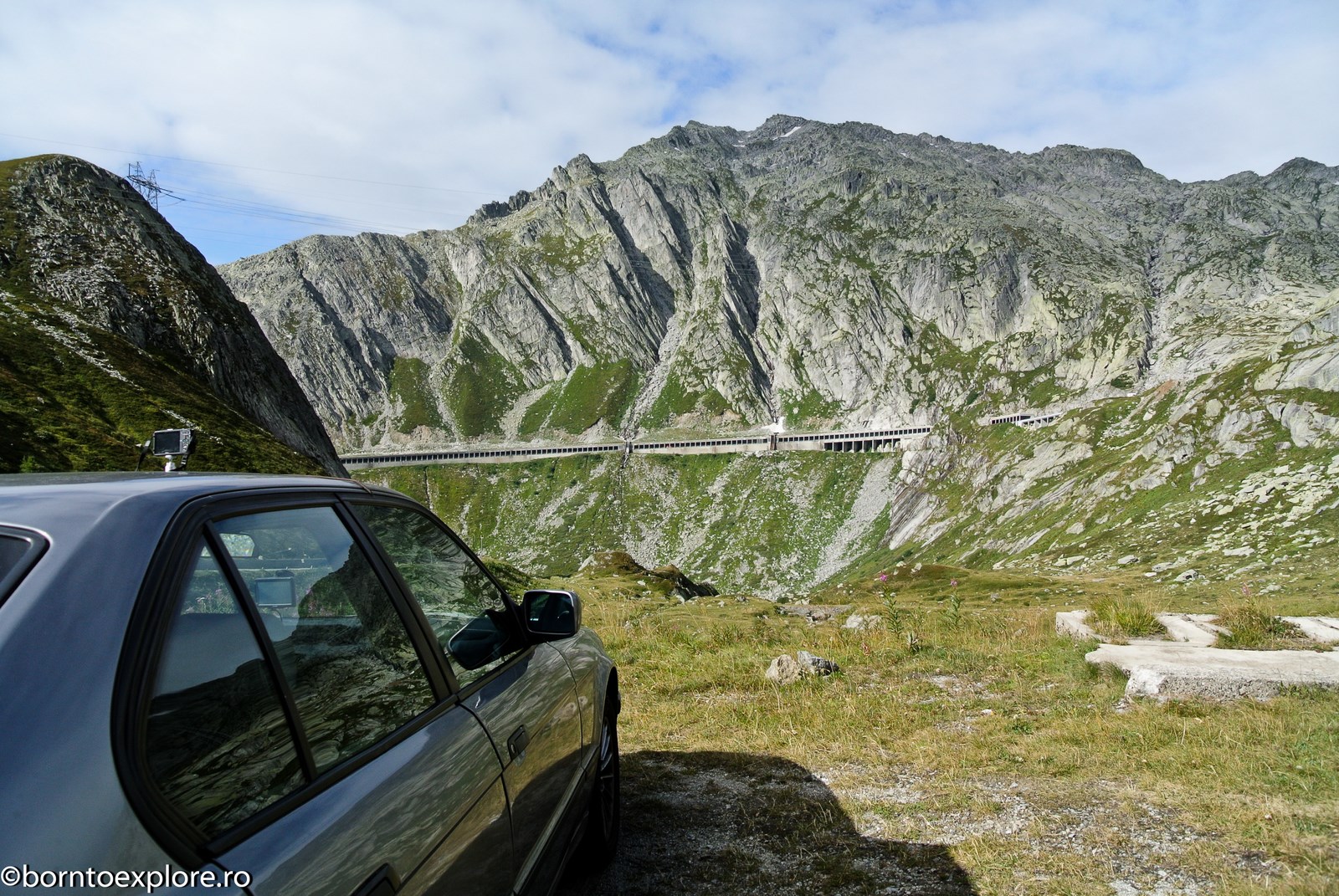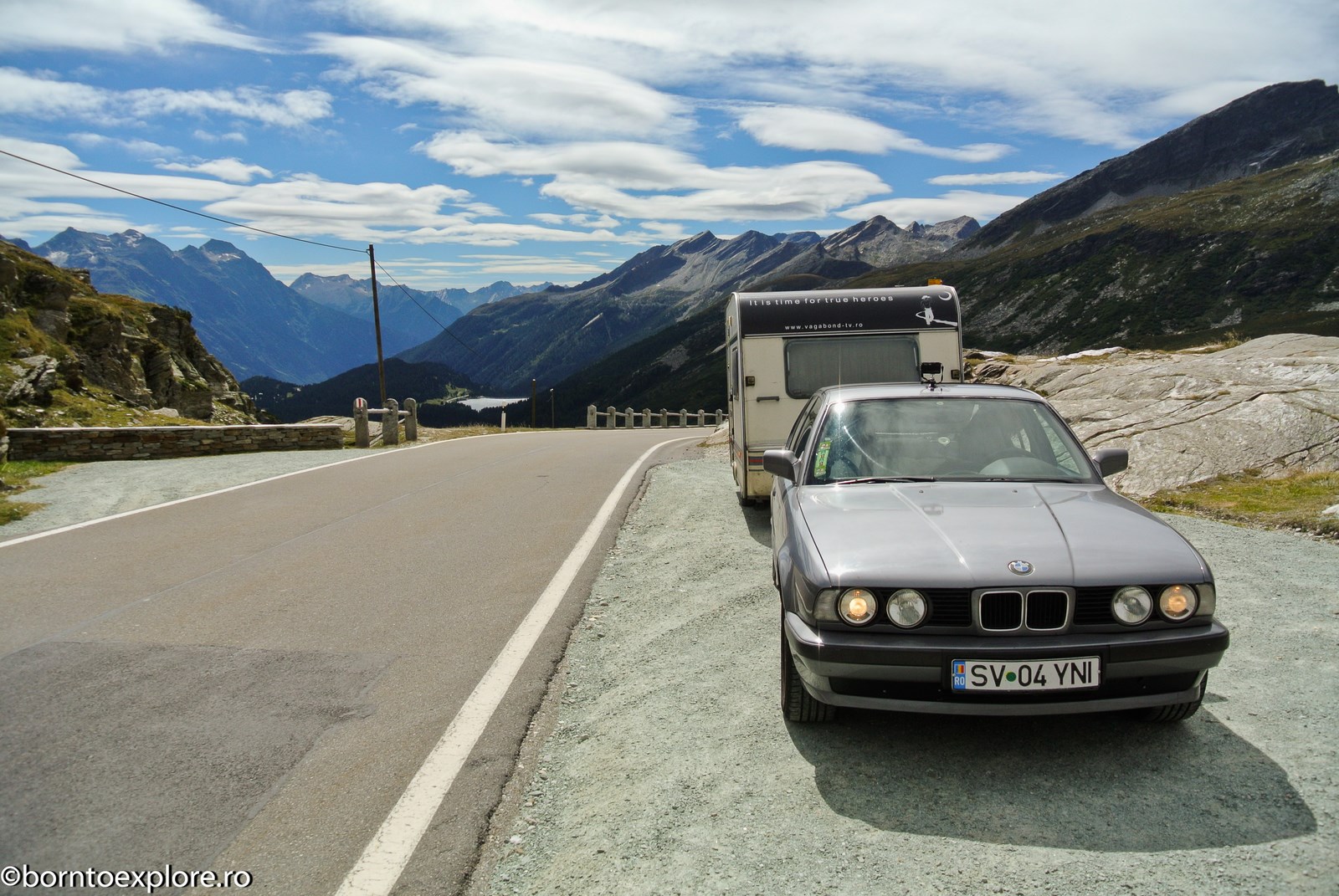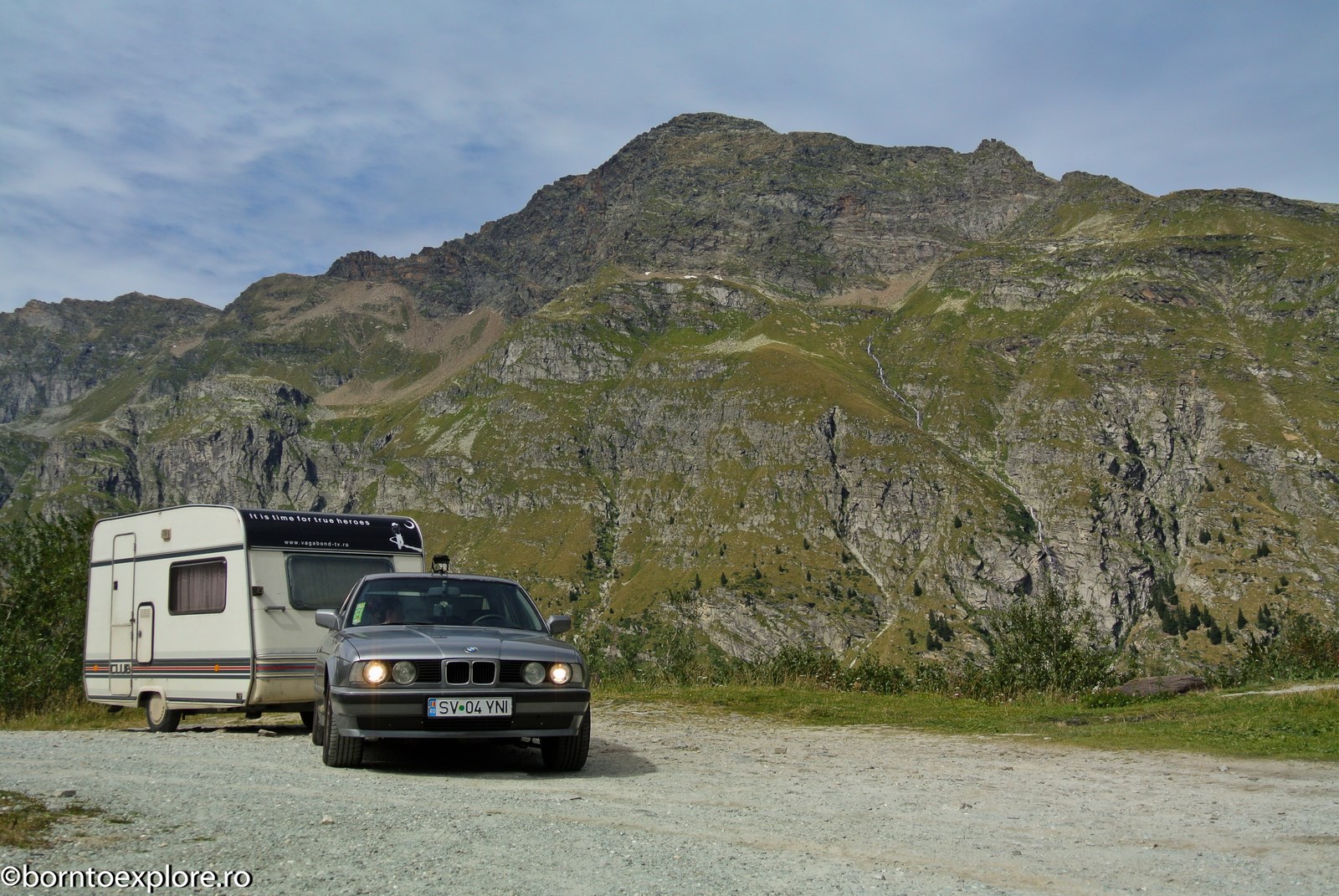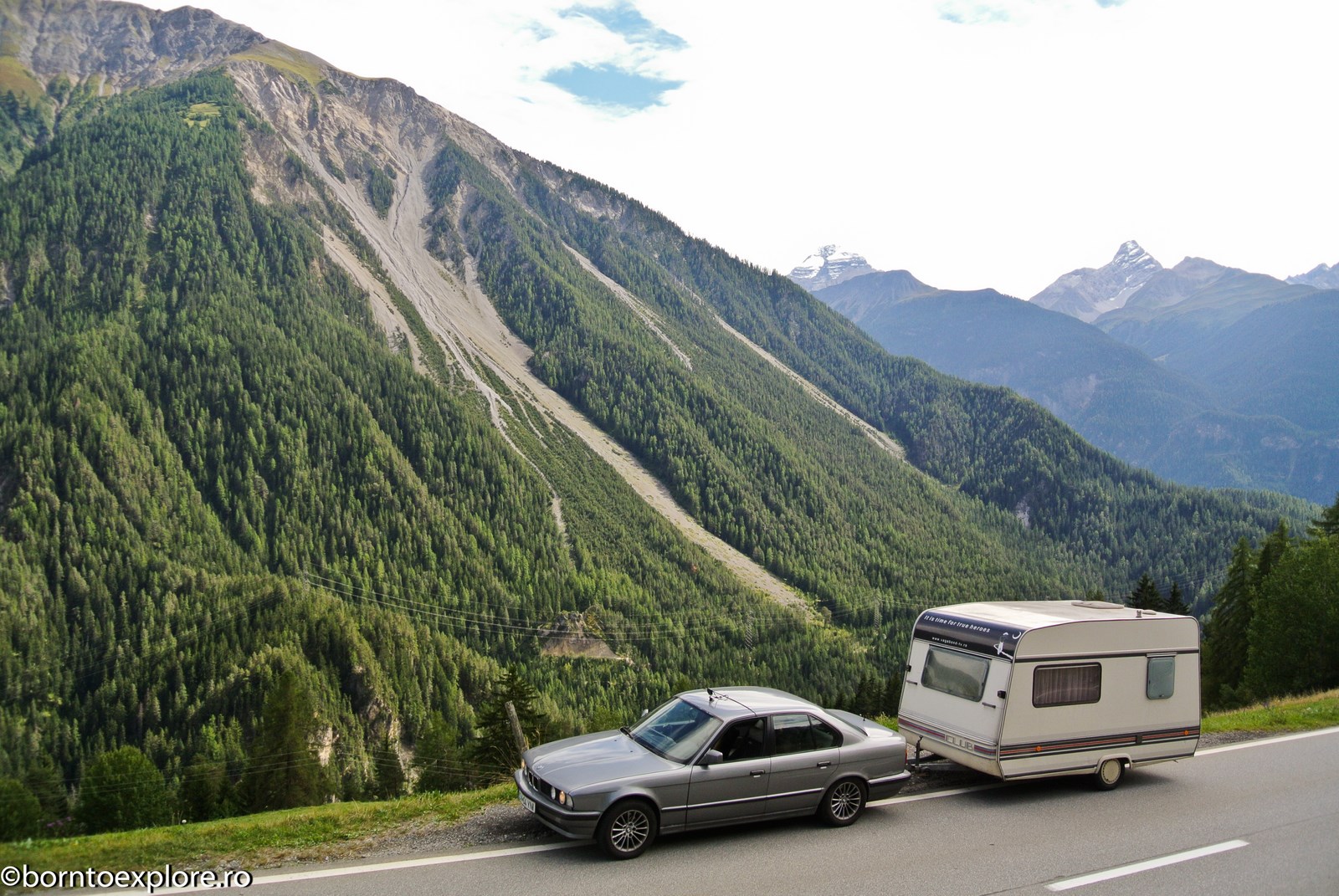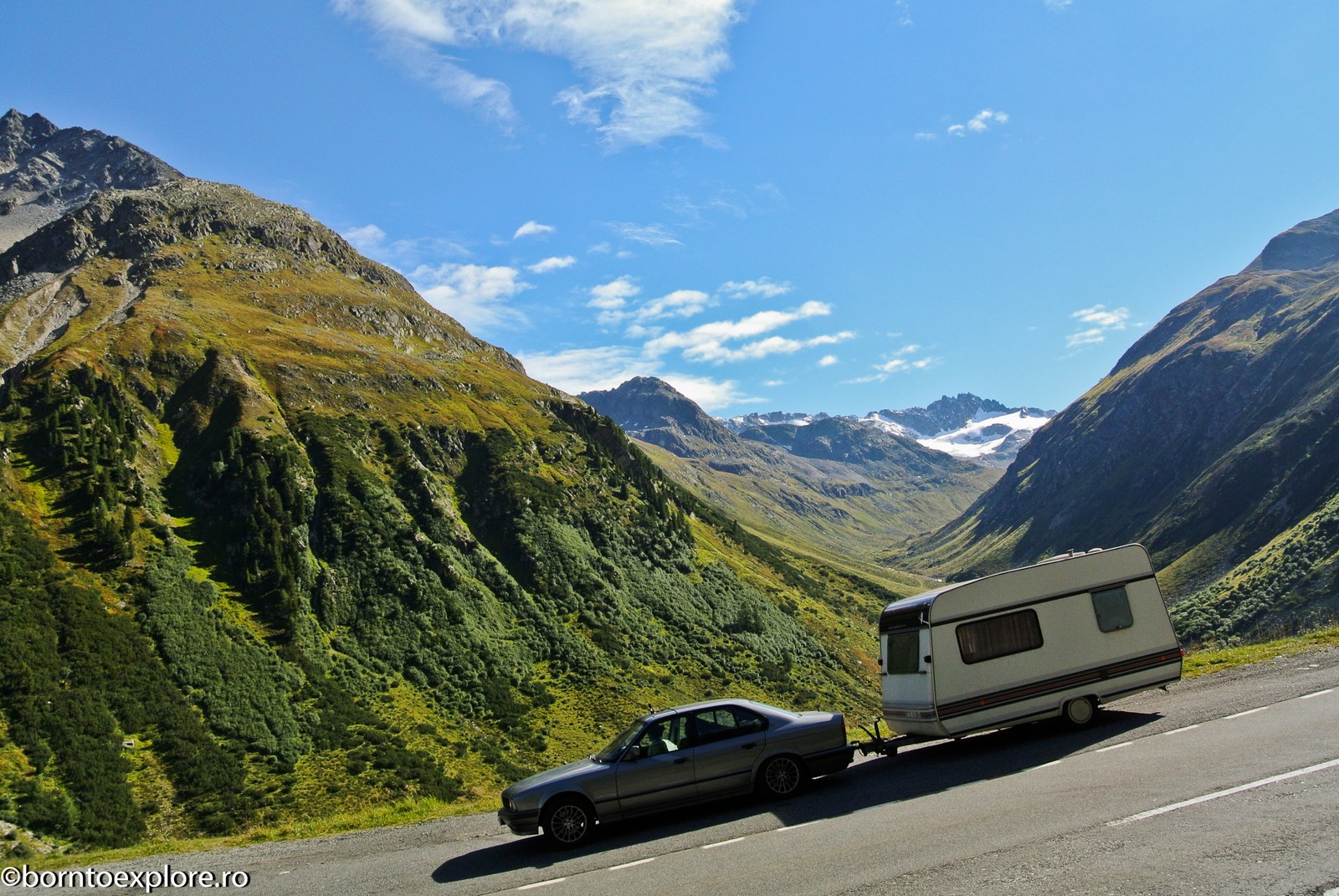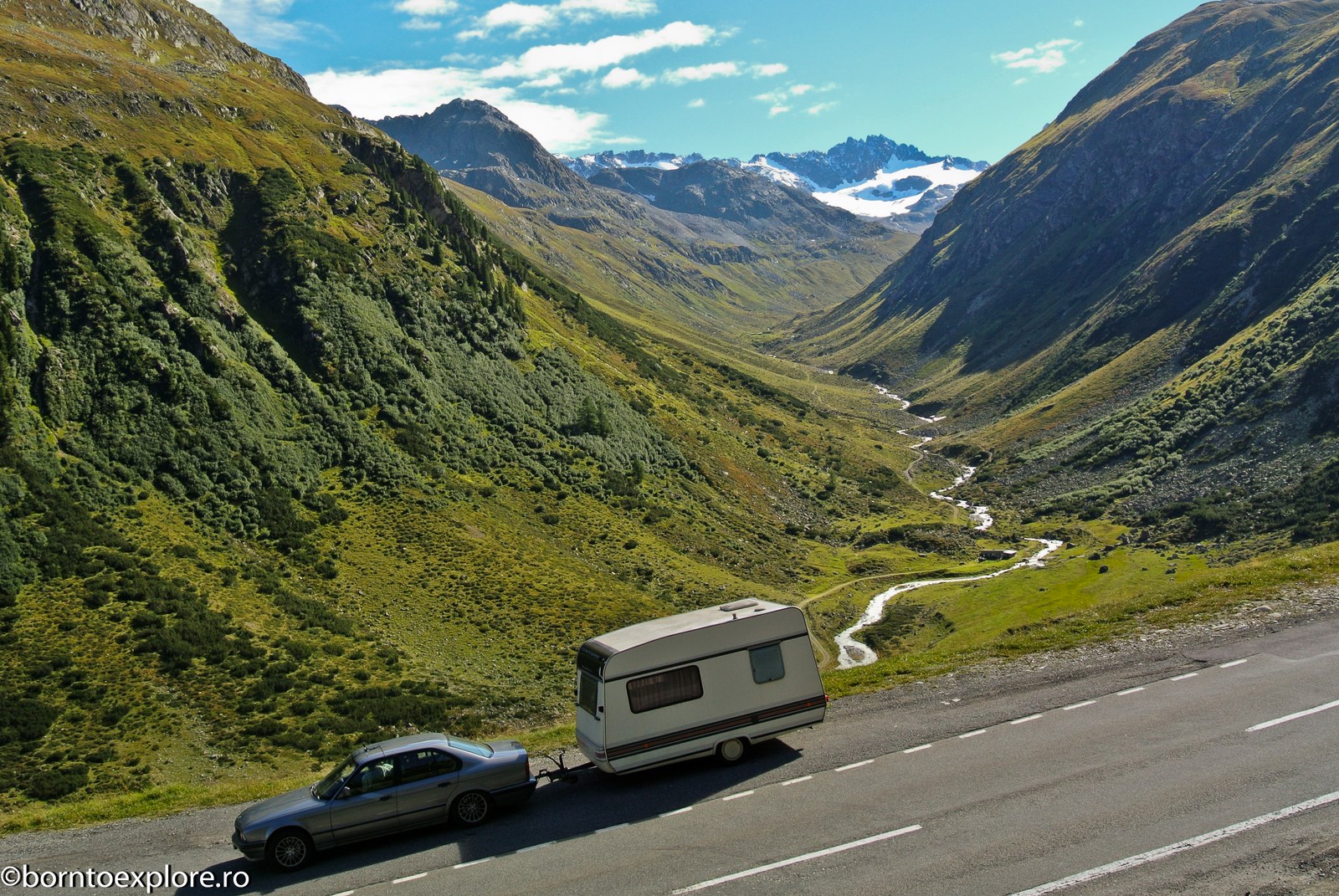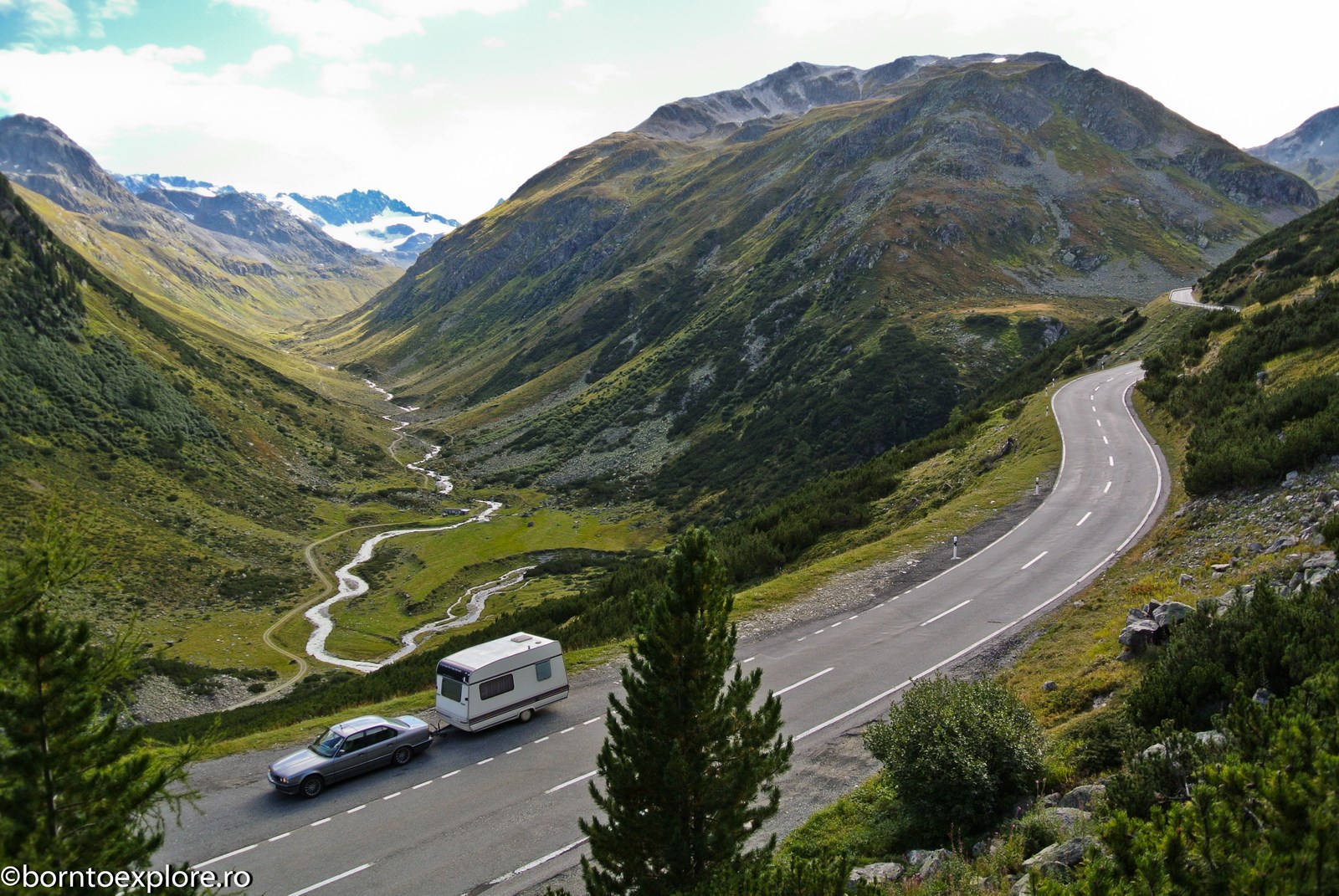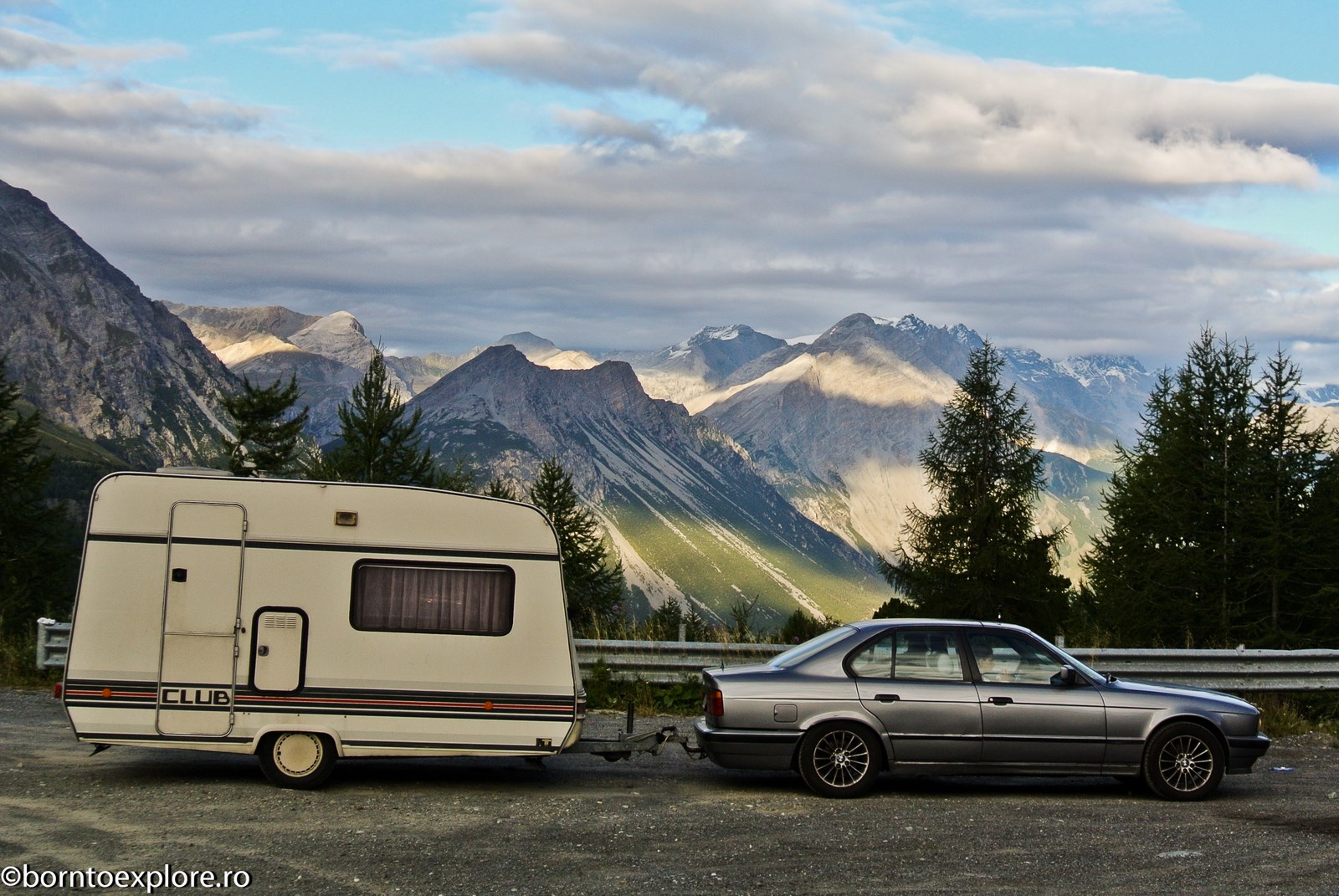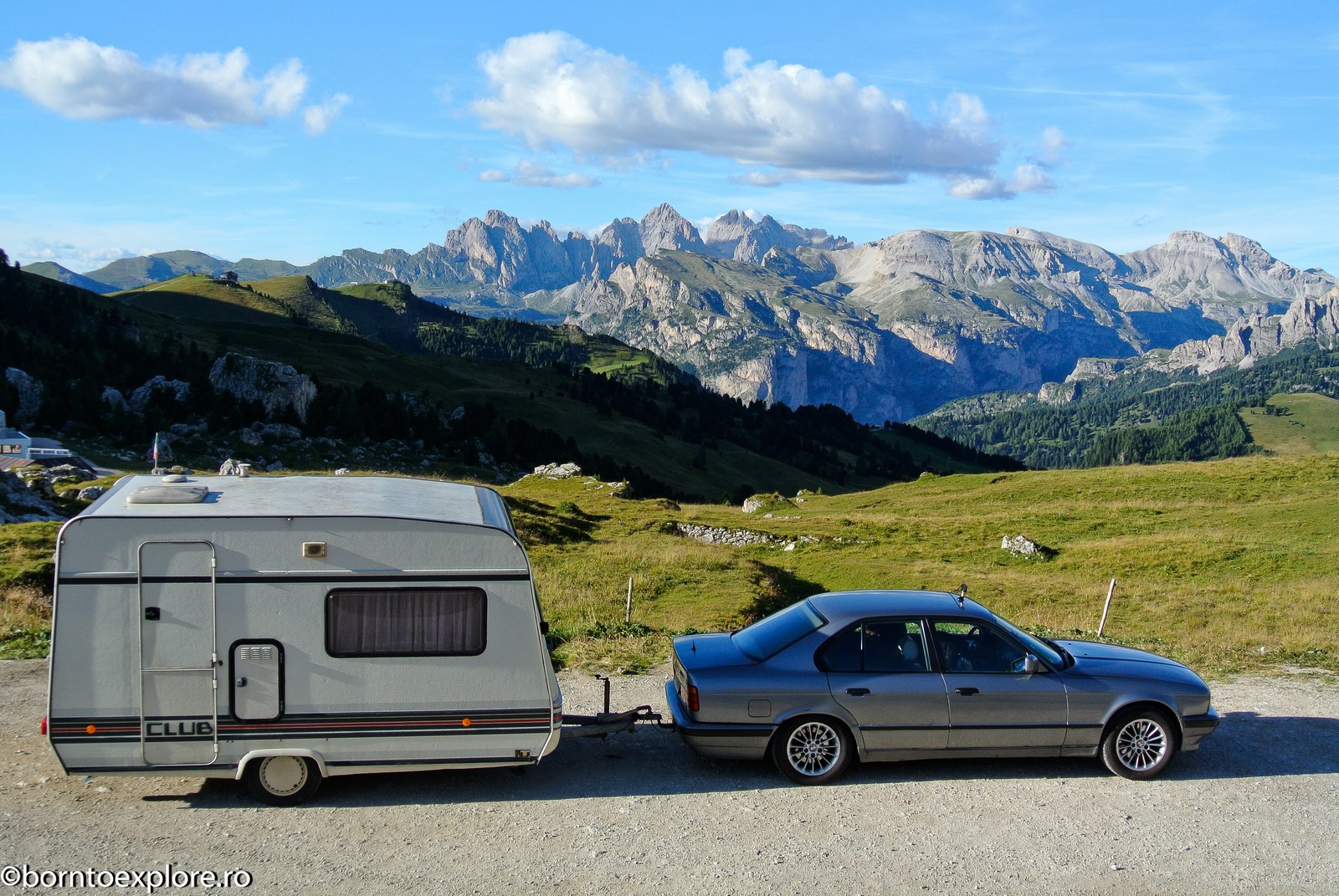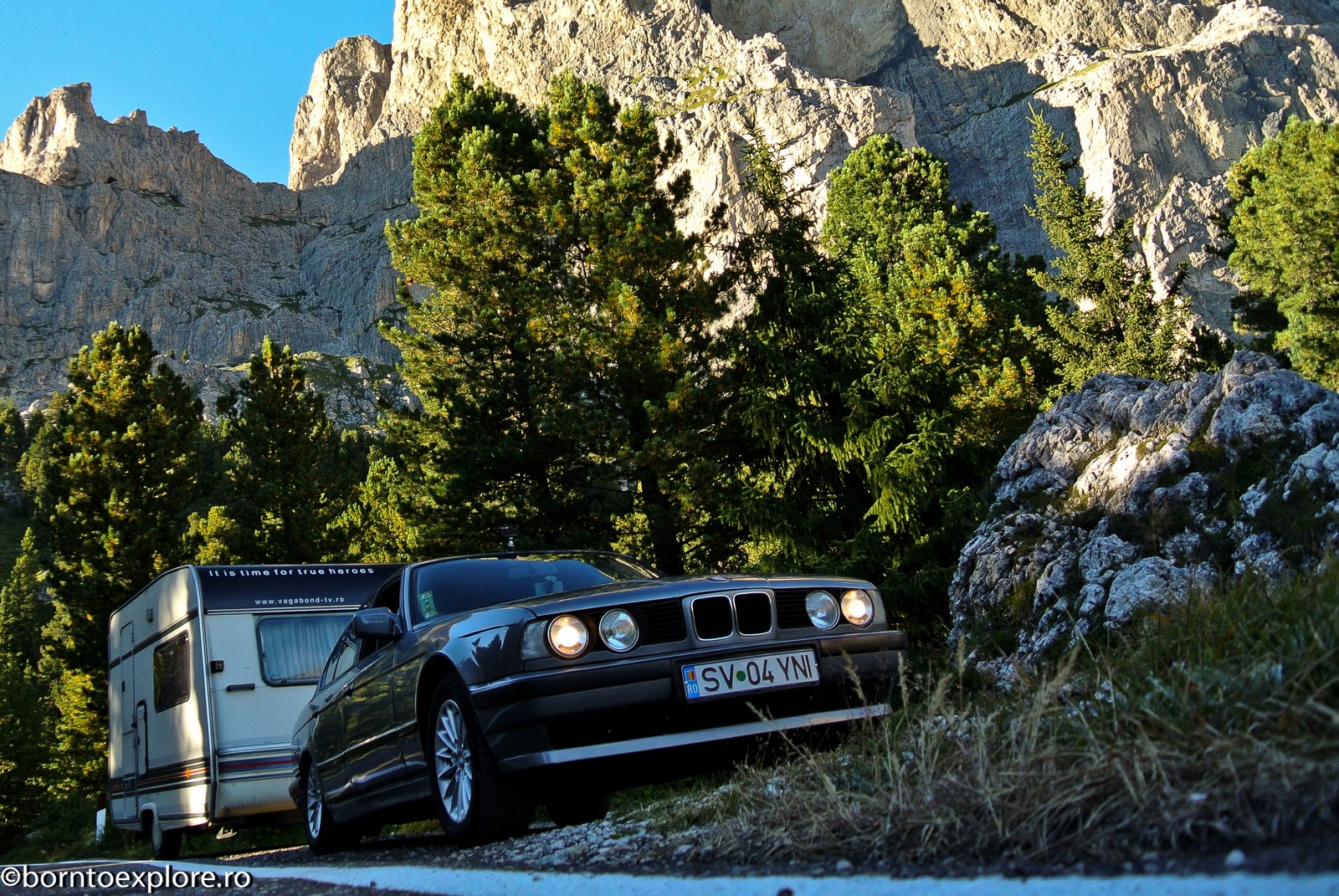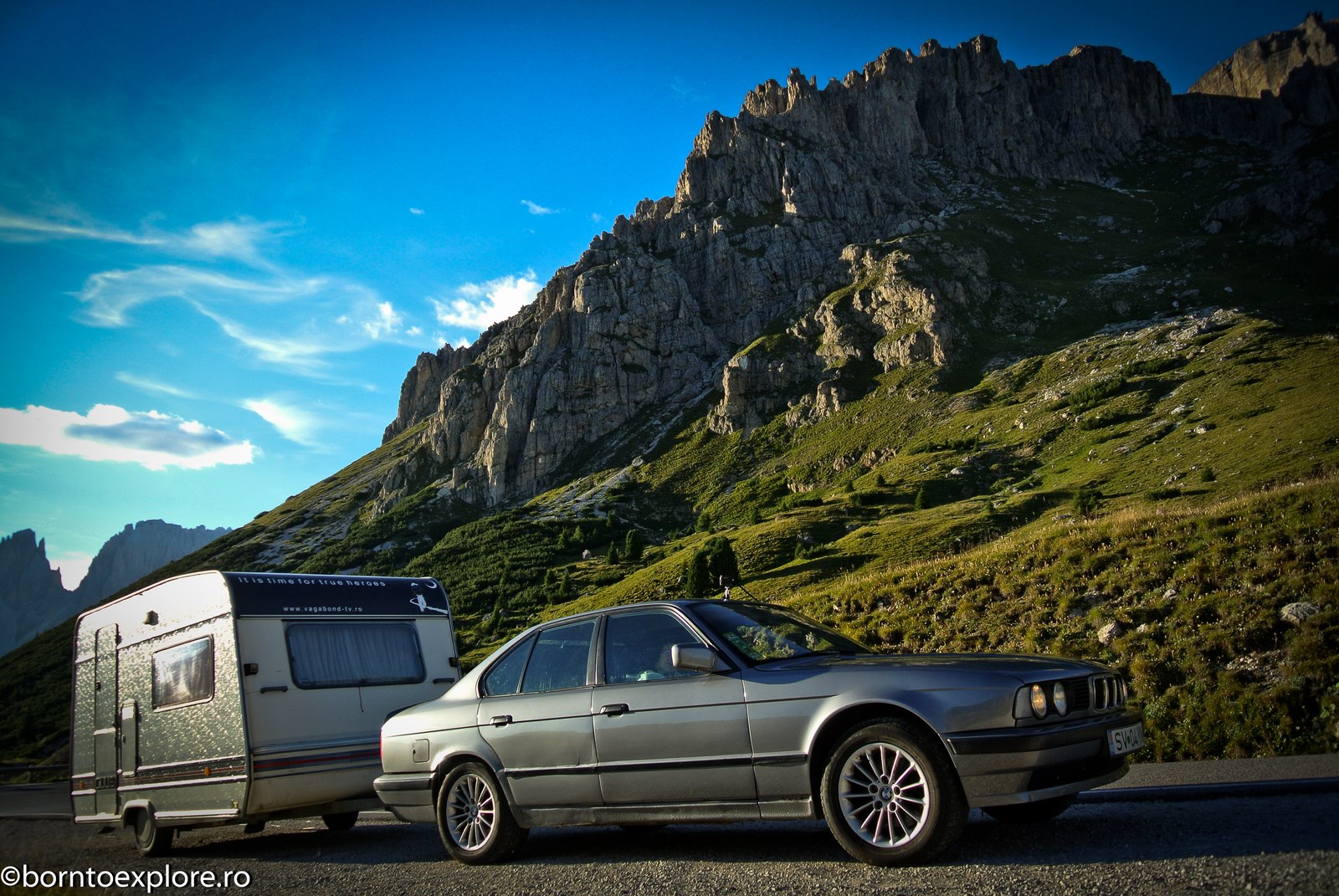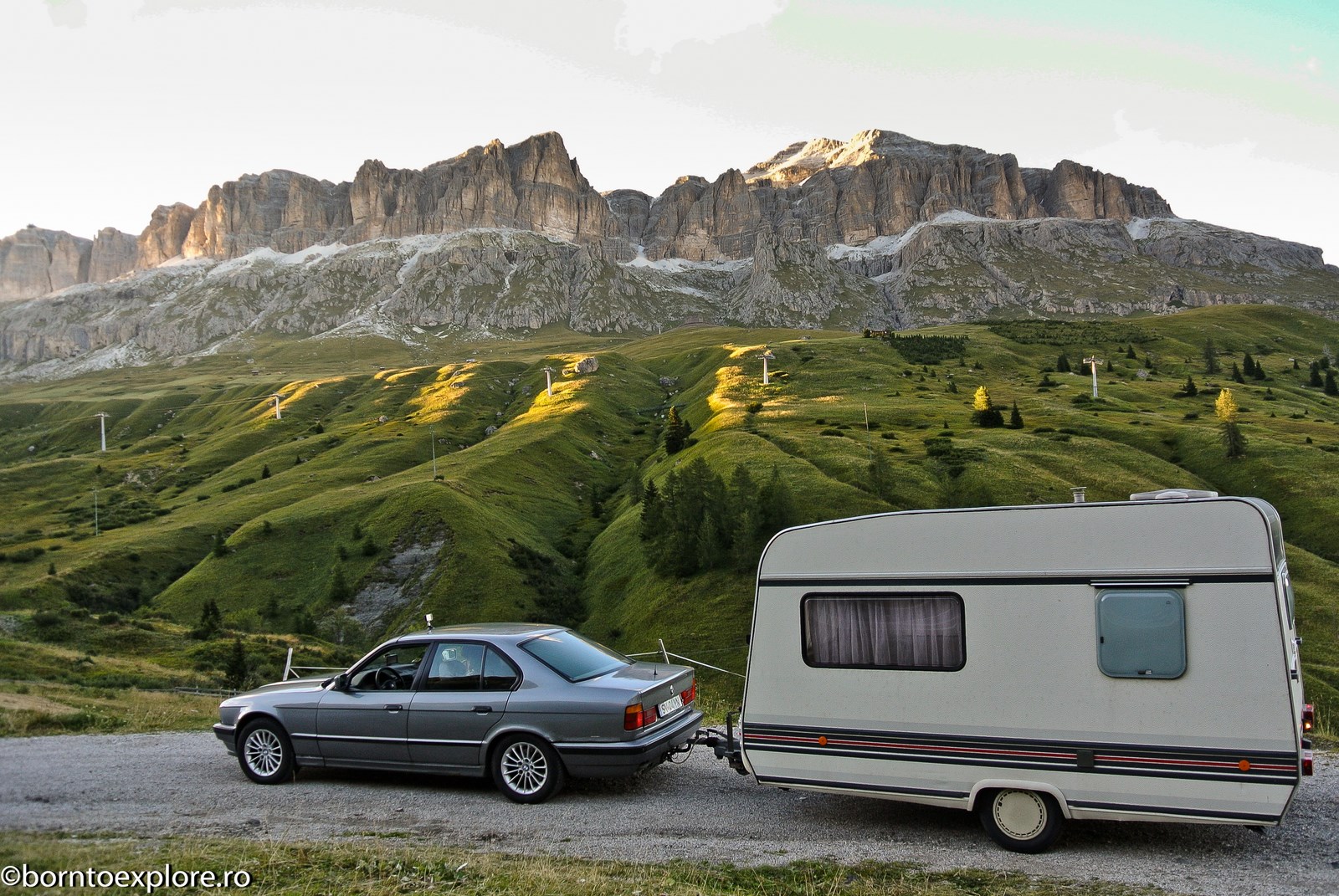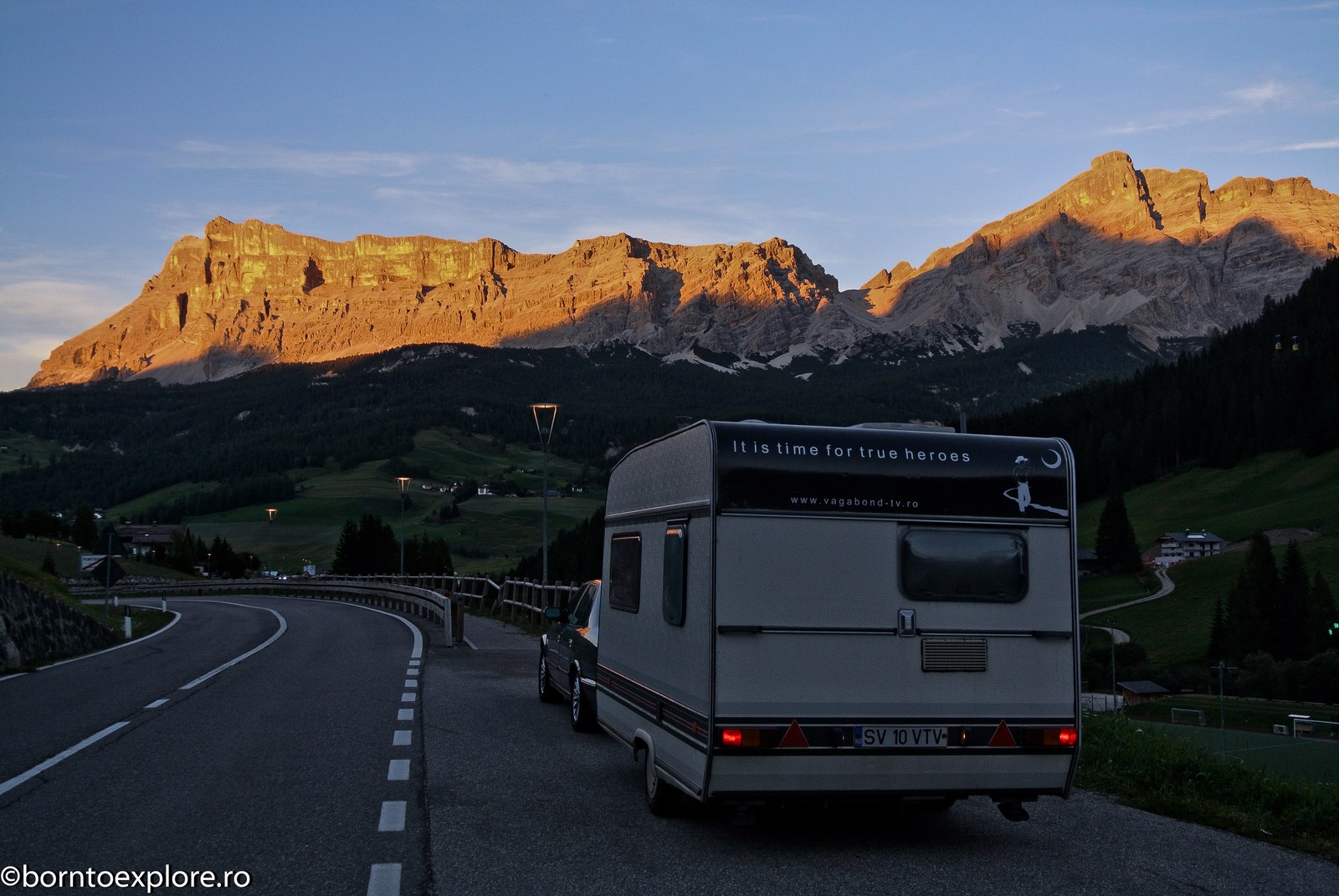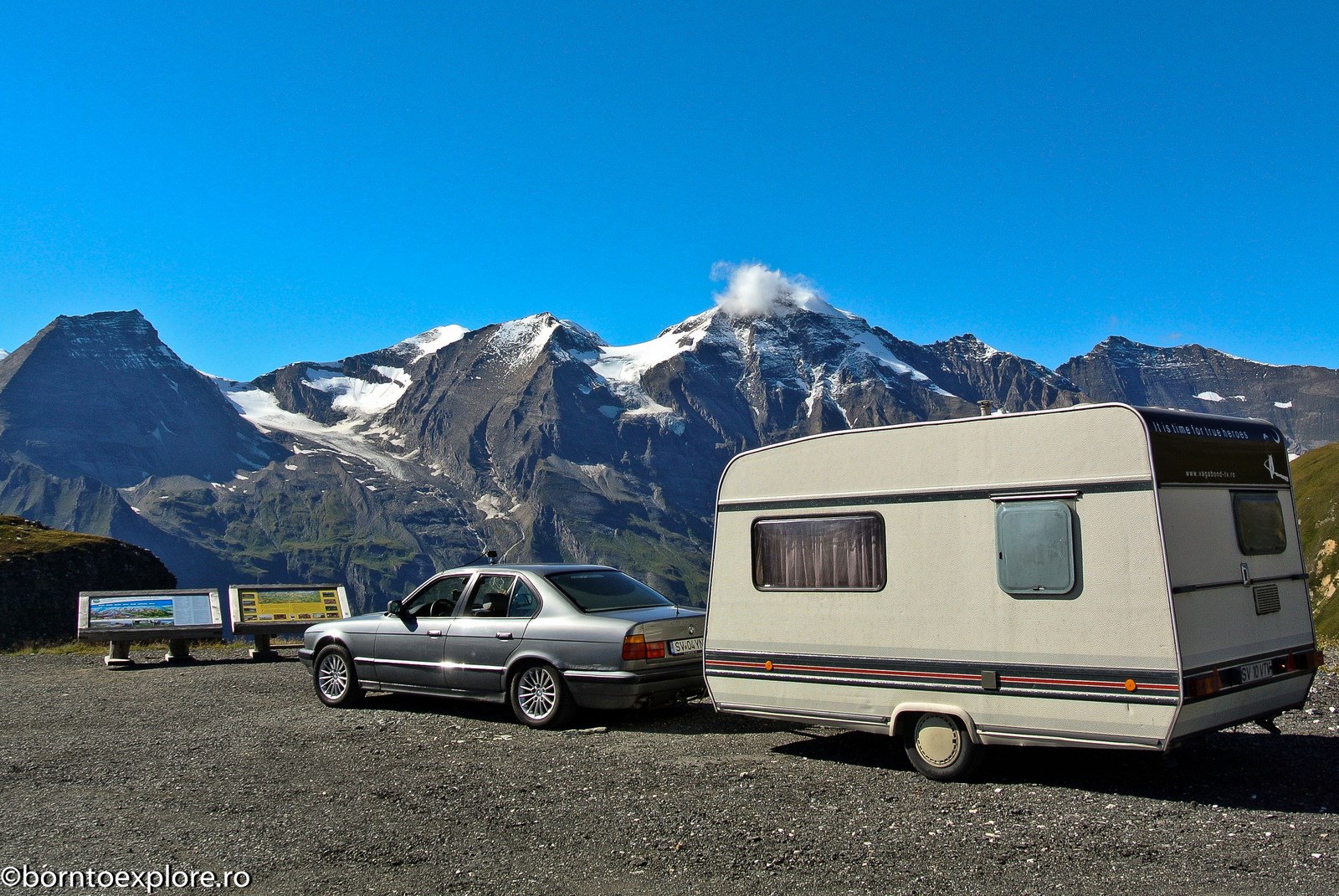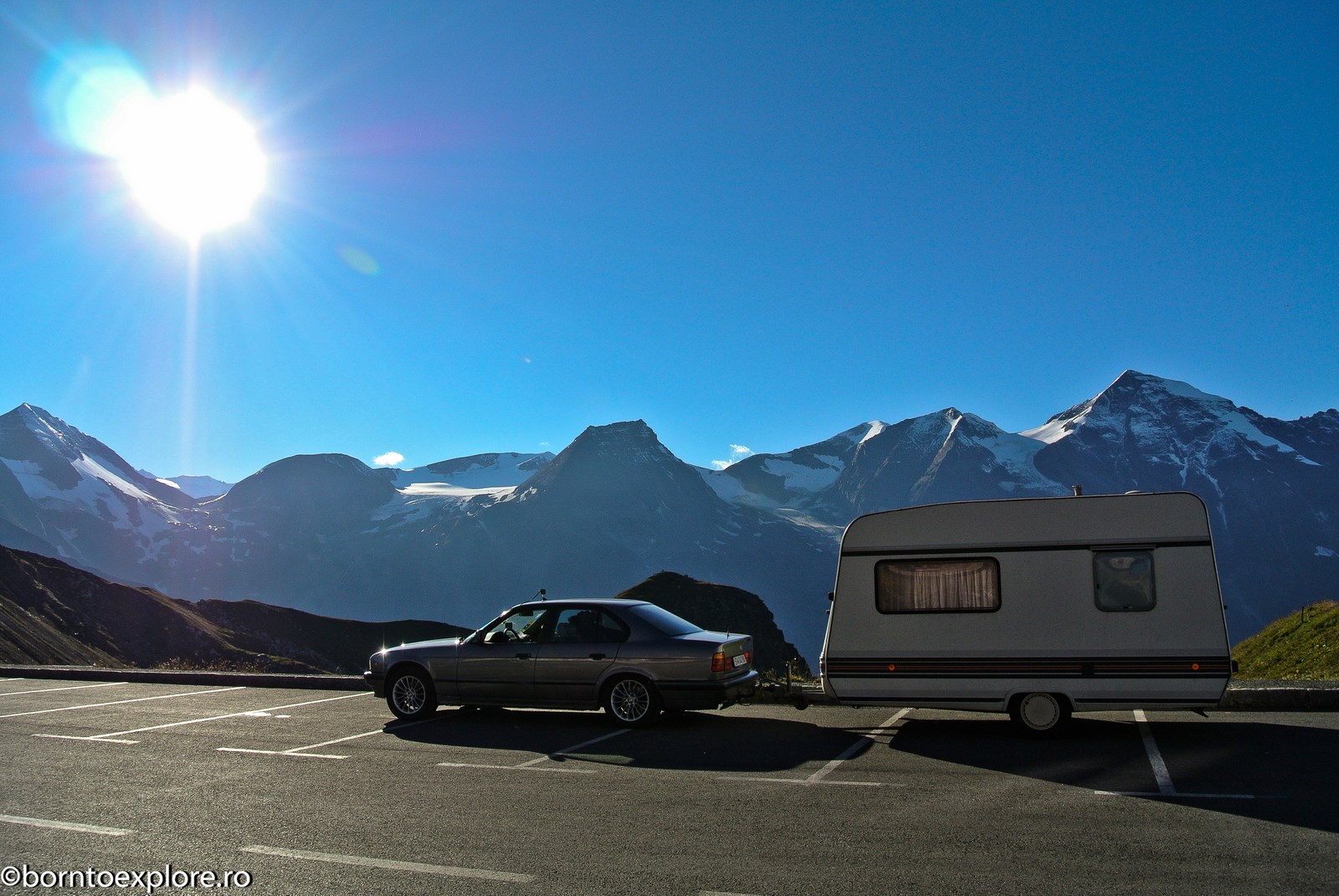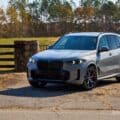Ovidiu Jelea, a BMW enthusiast and passionate explorer, traveler and lover of the mountain, comes back with another amazing story involving a BMW E34 525i.
The perfect roadtrip is actually a “drive test” made by the daring BMW enthusiast, before his next project – A Tour of North America, including the ascent of McKinley peak (6194 m). The adventure meant 5,700 km, 14 days, crossing 14 of the highest passes in Europe twice, a BMW 525i plus a trailer, two people and a dog.
Let’s see their story below, together with some amazing photos.
Have you ever tried to imagine the perfect long distance road trip? What would it mean? Where would you lodge? Where would you go? What would you visit? Would the road between destinations matter? What car would you use?
For me, a round trip between Bucharest and Chamonix, going through the most imposing road passes in the Alps, with a stop in Plitvice, is the plan for the perfect trip. 5700 kilometers, about 100,000 meters elevation difference, 14 passes, 14 days, a 23-year old BMW to which I attached a trailer full of equipment and supplies and two Nikon cameras, one of which stood permanently fixed with a suction cap on the roof of the car, filming. The car is the same BMW that I used two years ago in a winter tour of Europe, that reached the Arctic Circle and has finalized in the Caucasus, Russia, with a winter ascent on the highest peak in Europe, Elbrus (5,642 m). It is known to all as “The Legend”.
I have traveled with my girlfriend Ruxandra and Jinx, our dog, who attended during the trip the Euro Dog Show in Geneva and won 3rd place.
The adventure began with the seductive sound of the M50B25 engine that blended smoothly with the rhythms of URMA. I could try to describe in words the experience of piloting the most beautiful curves that you could ever see through clouds, fog, rain, sunshine and rainbows, on the edges of abysses bounded by colorful flowers, rivers, glaciers and waterfalls, but as much as I tried to recreate the magical atmosphere that I found myself into for two weeks, I would not succeed.
I did my best to steal with the camera this experience to the limit of the senses and to recreate it in a video footage. Originally, it should have had two to three minutes, as much as it is “recommended” for a video on youtube.
Then I realized that I would terribly maim the real experience, so I made a fifteen minute film, just for me. A movie to see again every morning together with a good coffee that fills me with energy. Those who want to offer themselves a special experience can escape fifteen minutes anytime, the film is here:
I warn you that I left it empty of thoughts, ideas, dreams, but it’s full of eyes and ears. It is a movie that you want to see not for the thoughts, but you come with your own thoughts. If you don’t have any, it is possible to find some during your watch.
What is not seen in the film but is shown in the album is Chamonix, the most surprising city that I’ve ever seen. There is always something magical, something new about it. Just like it was now. After a week of peace and good music, of panoramas frozen in perfection and images that ran sau fantastically in front of my eyes … boom! There followed Chamonix, an explosion of color, life and real emotions. Ultra Trail du Mont Blanc.
Hundreds of people were enjoying together the most difficult European Ultramarathon: 168 km, 9600 m elevation difference, distance covered running. This year’s race was one worthy of the Guinness World Records. I managed to stand right next to the finish line when the Frenchman Xavier Thevernard, age 25, won the race and broke the record for the best time. In the women’s running, the American Rory Bosio also beat the previous record.
Beyond the excitement that surrounded those who won the race, the most impressive thing of all was that all athletes, the last of them arriving after more than 24 hours from the winner of the race, were received by the public with the same warmth and admiration. And that atmosphere had something unique, an ingredient that I have not met in any sports competition, regardless of the sport or the magnitude of the event, and I participated in many sports competitions, because I am an athlete and a coach. I find it very difficult to identify the ingredient, maybe it’s the festive atmosphere, maybe it’s the fact that people of all ages can participate in the race and anyone can win, as did Marco Olmo at 60 years by winning two consecutive editions, maybe it’s the special attraction of the colorful and charming Chamonix, or the sporting spirit of those who choose this place as a holiday destination, or maybe it’s a mixture of all this, however, UTBM has something unmet in any sports competition. If a competition is almost always an animated, full of emotions event, UTMB transcends beyond the meaning of a race and of sports in general.
Returning to the route and passes, the old BMW pulled the caravan round trip over the next passes: Grossglockner (2504 m), Edelveissspitze (2571 m), Timmelsjoch (2509 m), Foscagno (2291 m), Pordoi (2239 m), Stelvio (2757 m), Campolongo (1871 m), Bernina (2328 m), Fluela (2383 m), San Bernardino (2065 m), Gotthard (2106 m), Furka (2429 m), White (2314 m), Sella ( 2244 m).
Perhaps you are wondering how the experience was as a driver and which was the most beautiful step. I’ll start by mentioning that I am a fan of gas engines and that although this route is accessible to any car, towing a caravan can make the difference between a very pleasant experience, in which you always have the taste of freedom and a terrible one. There are many hairpin curves and steep slopes and since I stopped many times uphill, sometimes just for taking pictures, I felt how important it is to have 192 horse power that pull stronger, if only encouraged. An inappropriate engine might have stirred the whole thing, but it would have been stuck at shifting from bottom gear into the higher gear, all in a roar of overspeed and clutch smell. The old E34 left each time without any problem, climbing most of the passes in second gear without ever exceeding 3500 rpm, even in the most difficult sectors. This is what the whole experience was like, equal to a pleasant stroll along the most beautiful roads of Europe.
There were some exceptions, a few times when I left Ruxandra and Jinx with the caravan on the top of the pass, and I descended all the circuit, all the curves only to climb again, this time in a sporty way, trying to use everything my instructor, Claudiu David, taught me. I tried this experience on Gotthard (the old road), Stelvio and Grossglockner, the three paths that I’ve chosen to occupy the podium of the most beautiful passes in Europe. Gotthard Pass, in Switzerland, has a portion with perfect asphalt but the most interesting part I found was the old road which, although cobbled is in excellent condition, without any unevenness and it feels fabulous to drive.
Stelvio in Italy is the most impressive of all and the most difficult to access with a caravan. The first time I arrived here was during the night, on a wet and foggy weather and was really a challenge to climb to the top, where it was snowing. However, extremely tight curves don’t allow you to drive very fast and steering is somewhat rhythmical and predictable. Grossglockner in Austria is a perfect example of well done marketing. It is the only one of all 14 passes we passed through that has a fee of 33 euro and once you get past the barrier you enter a national park, which is absolutely amazing. You can see marmots, enjoy a walk on the glacier where you can observe the effects of global warming or you can simply stop at any viewpoint to enjoy a coffee and admire the scenery. It is a haven for bikers and is perfectly normal, because the road has perfectly steeped curves, and it practically invites you to test your piloting skills.
Of course, choosing the most beautiful pass is subjective and relative, each of them had something special that I have not found in other places, however, if I were to make a weekend trip I would go again in Grossglockner, who earns the first place. Stelvio is on the 2nd place, there I would go with a bicycle at me for a few days, because not only the pass but also the surroundings are a perfect location for biking, and the road actually has a history in which Giro d ‘Italia has many written pages. On the 3rd place is Gotthard Pass, and this is the pass to which I’ll think everytime I want to test a car, for example if I were to take a Z4 for a drive and give it what it wants, I would go on the cobblestones of the Gotthard Pass, the advantage being that the old road is not very circulated, so there wouldn’t be many people to see us when we do the most foolish things, plus that to get there I must pass through Austria, where Grossglockner is.
At return we stopped in Plitvice, a natural park with a unique conformation in Europe, full of lakes and waterfalls surrounded by forests. Plitvice is the kind of place that you tick off on your sightseeing list, you photograph and you move on. It is the perfect example that confirms the concept “less is more”, by breaking it. In Plitvice, more is less and this is shown from the human intervention to the way marketing is done. Rather than leave it as virgin as possible, they filled it with dozens of roads and paths strictly defined so that exactly two people can move past another and so Plitvice at the beginning of September, for instance, was swarming with people of all nationalities, going on two Indian files in opposite directions, each one foot behind the other. And it’s ironic to leave a crowded city to go on a holiday where, if you stop to take a picture and block one way you are cursed in five languages simultaneously, even though you thought you were going for a walk through the forest and listen to the murmur of the water.
However, if you want to visit Plitvice I recommend you either to go there first thing in the morning, as we did, and we were alone on the boat transporting tourists from one shore to the other, or to go there off-season when maybe there are less people. Regarding the marketing, in Plitvice you pay everywhere and this thing is extremely annoying, added to the fact that you feel in the forest just like in a museum. I’ll compare it to Chamonix, where parking, internet, toilets and transport (with mini buses called Les Mulets) are free. In Plitvice I arrived at a campsite where the price seemed decent, but then I found out it’s just the price for one caravan, and there is a separate fee for the car, another for the caravan, one tax for an adult, the fee for two adults, a child tax, and when I found the dog fee I abandoned the idea because I was too tired to calculate and so I “camped” in the parking lot of a gas station across the street. Obviously I spent three times more in Chamonix, just because I felt better and I didn’t feel that my breaths are counted.
I planned and went on this adventure with the objective of making the perfect trip by car. Did I manage to do it? If I say “yes”, it would mean that there is no other challenge, but the Legend can’t wait to hit the road again. So I set this goal for The Legend: the search of the perfect trip. And many more will follow, one more incredible than the other.
In this trip I filmed with Nikon AW100, I photographed with Nikon1 V1, I processed and edited with HP 8760w and the whole adventure was just a test before the real challenge that will most likely happen next year, also with the participation of Claudiu David: the tour of North America with Alaska as a destination. Details on www.borntoexplore.ro
I’ll leave you in the company of some moments captured in photo frames and I will end with a quote that I like, by Chuck Palahniuck:
“A minute of perfection was worth the effort. A moment is all you can ever expect from perfection.”
[Words and photos: Ovidiu Jelea – borntoexplore.ro | Vagabond-TV.ro]


